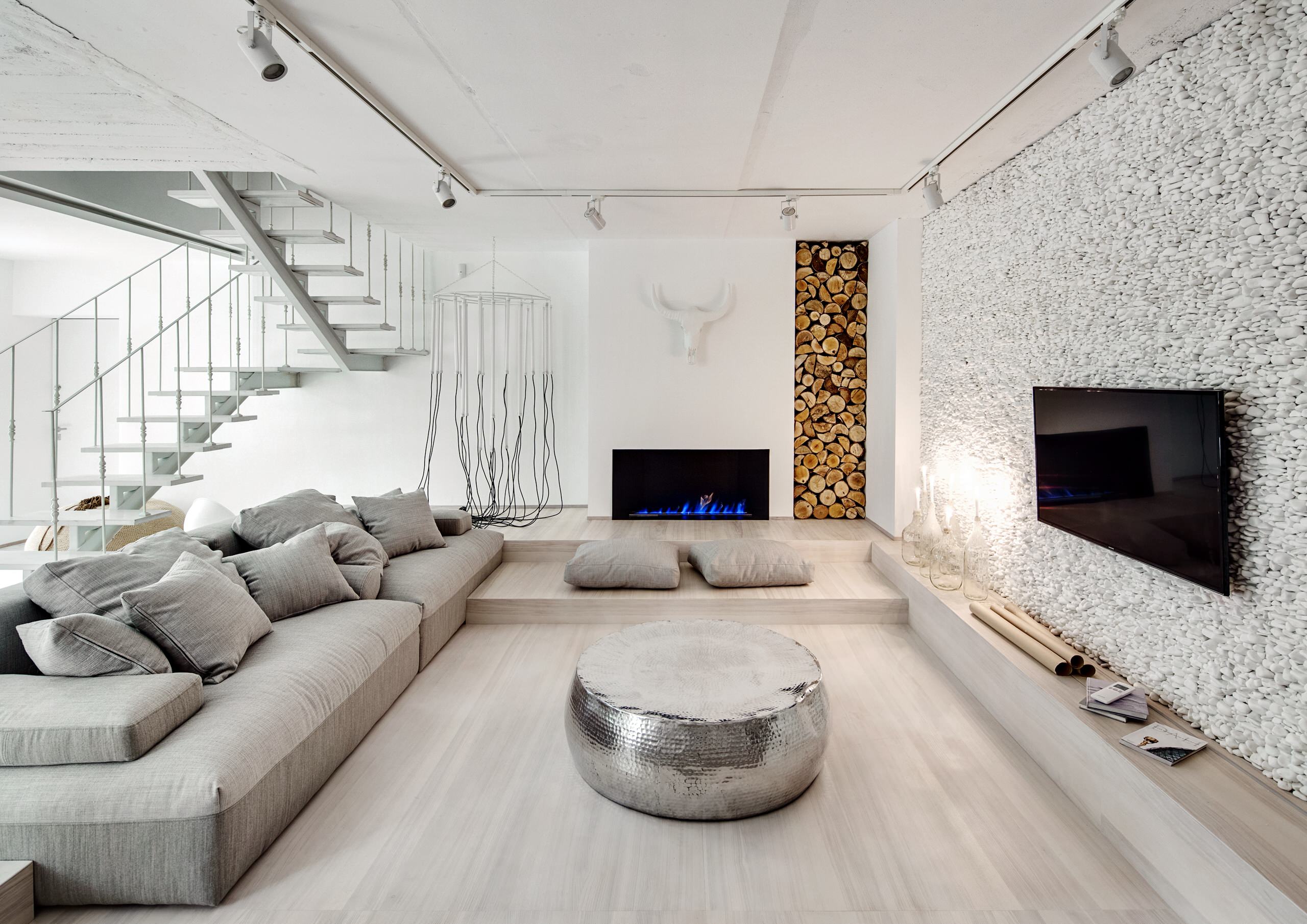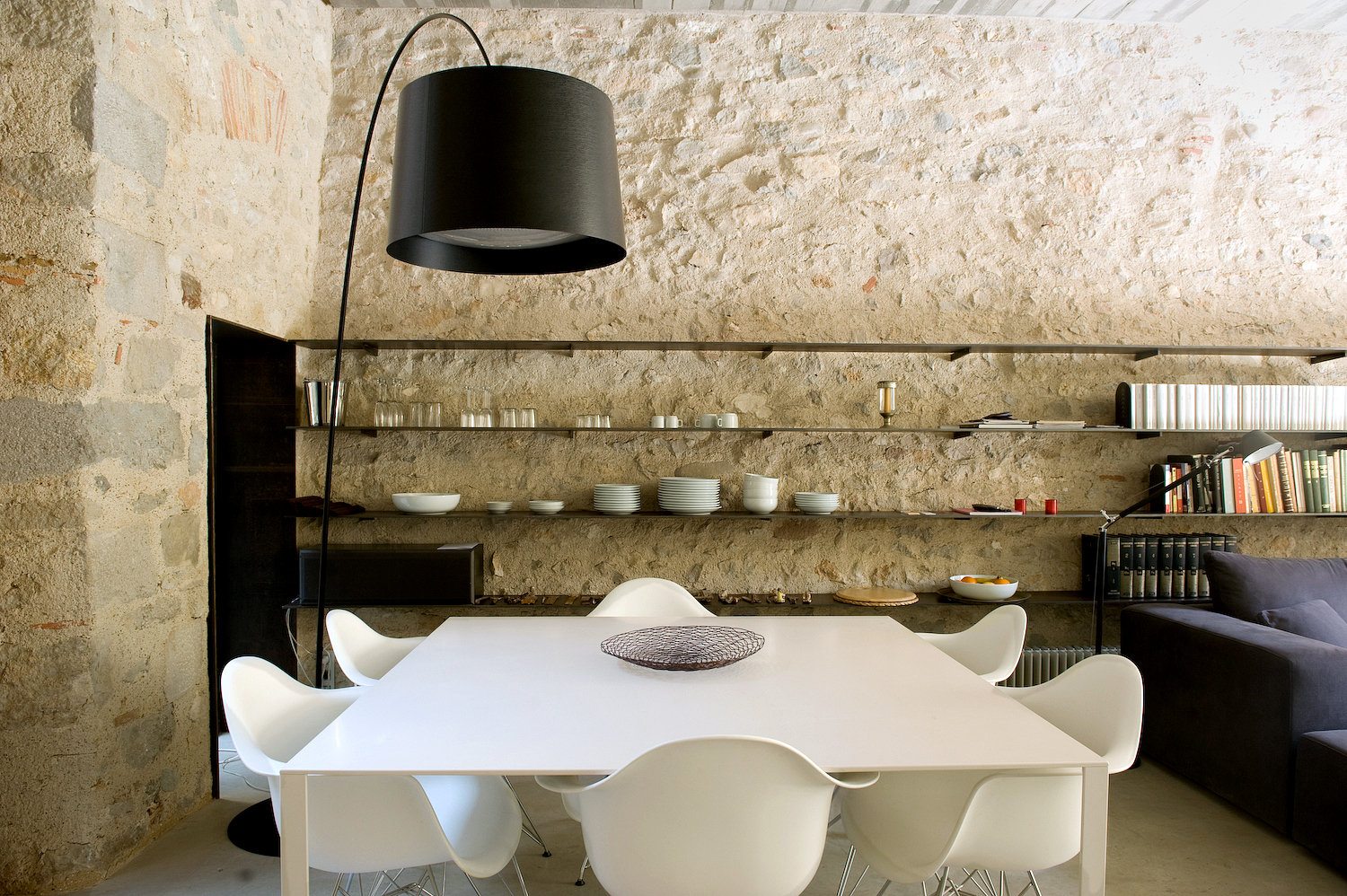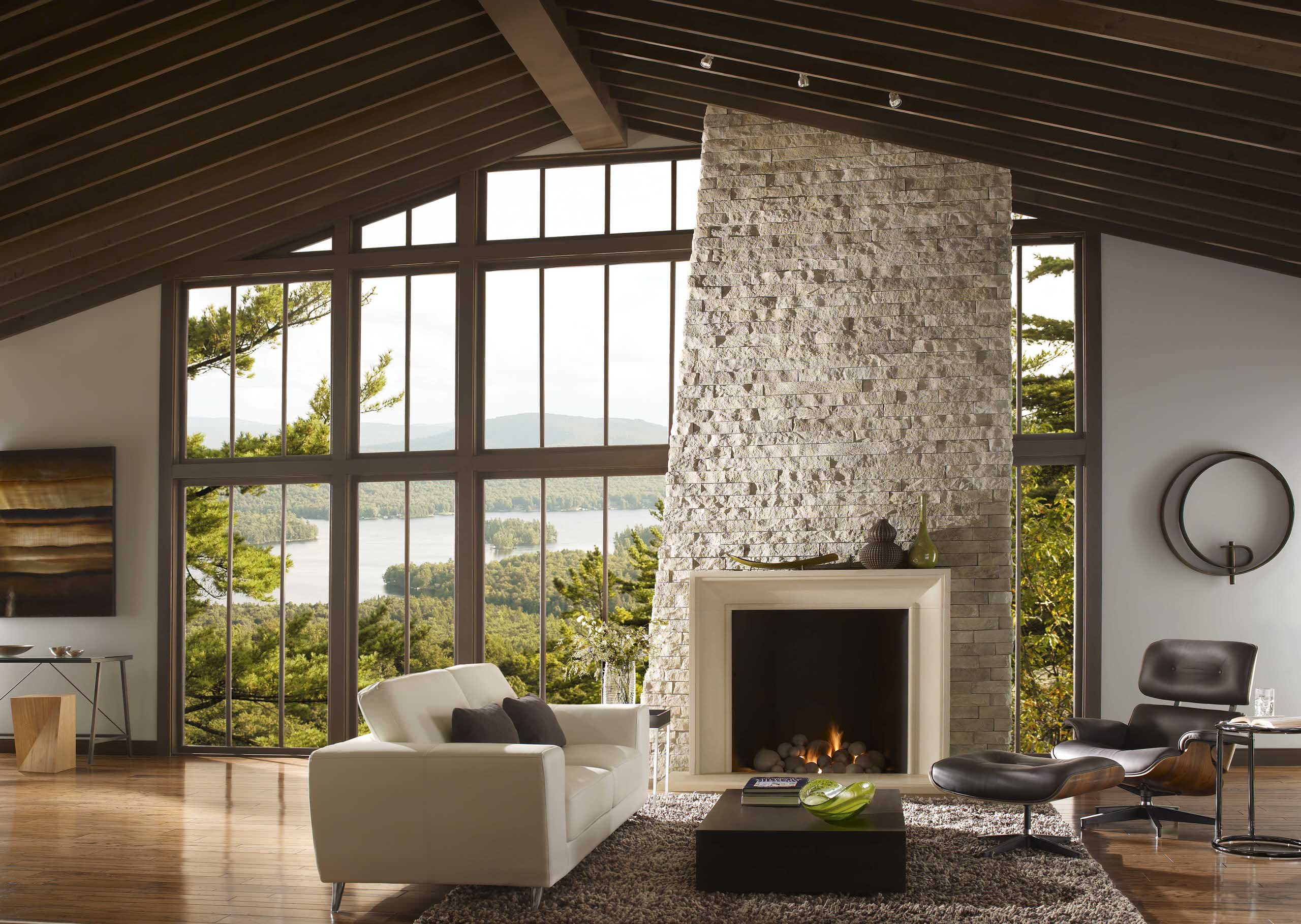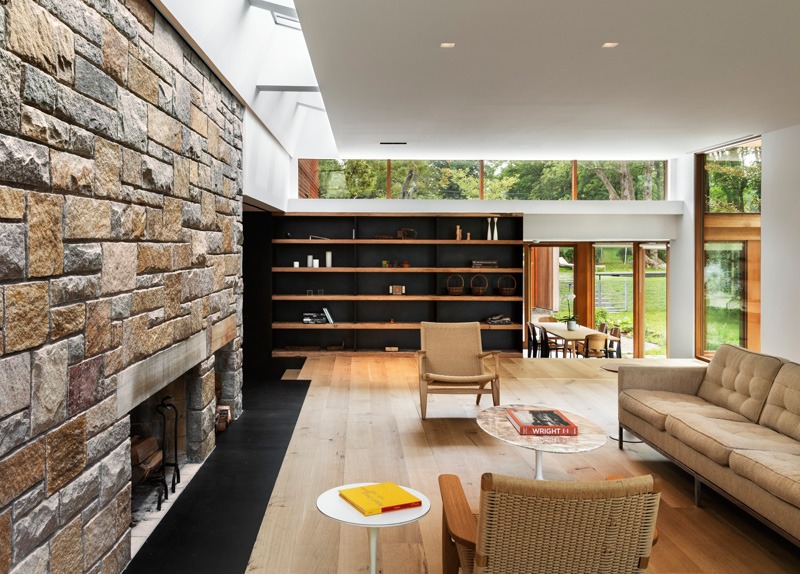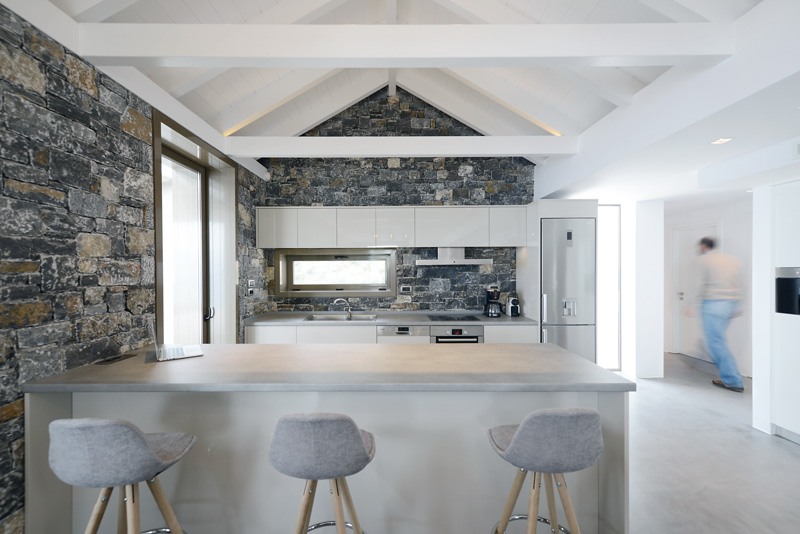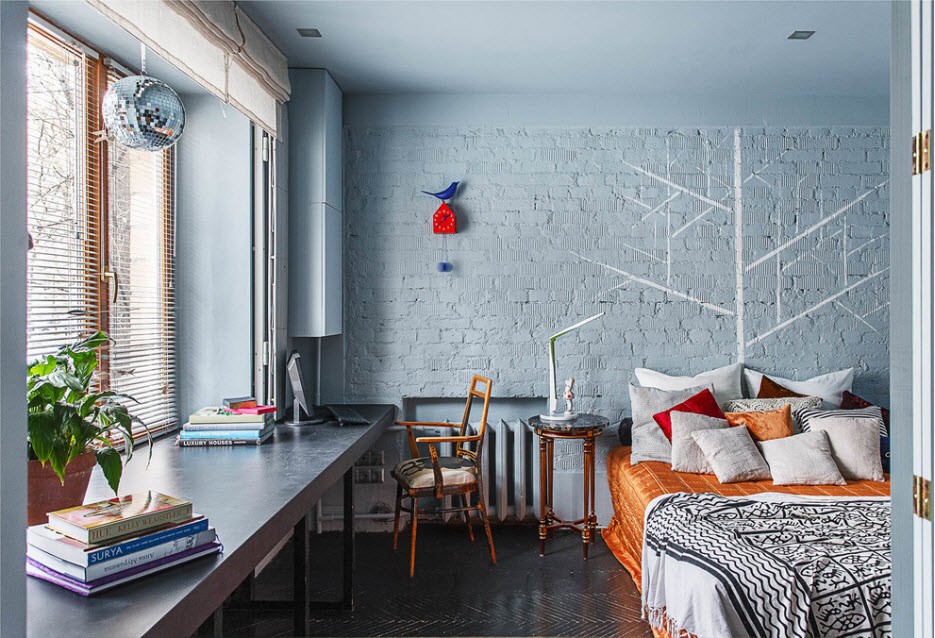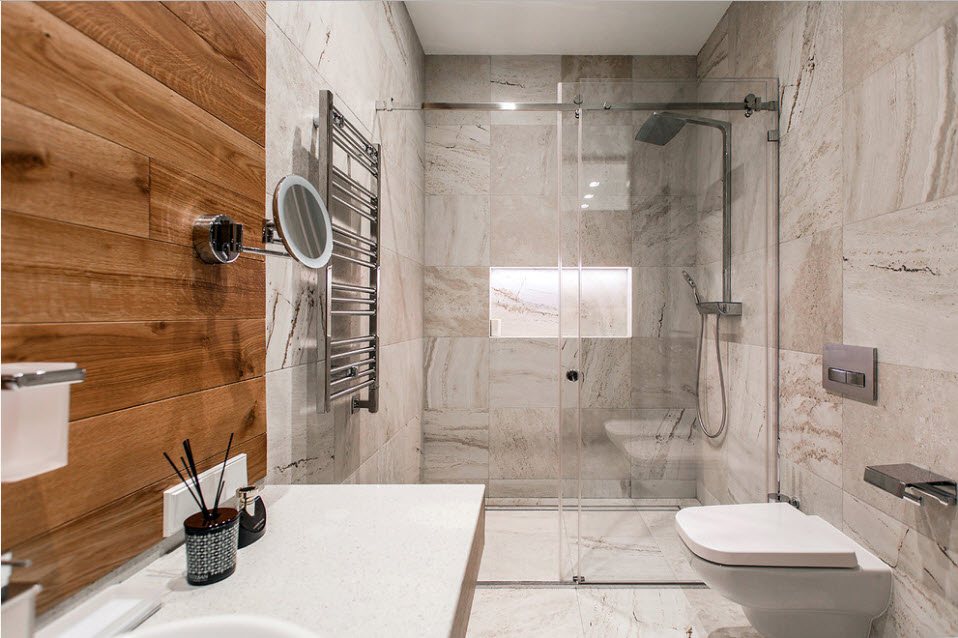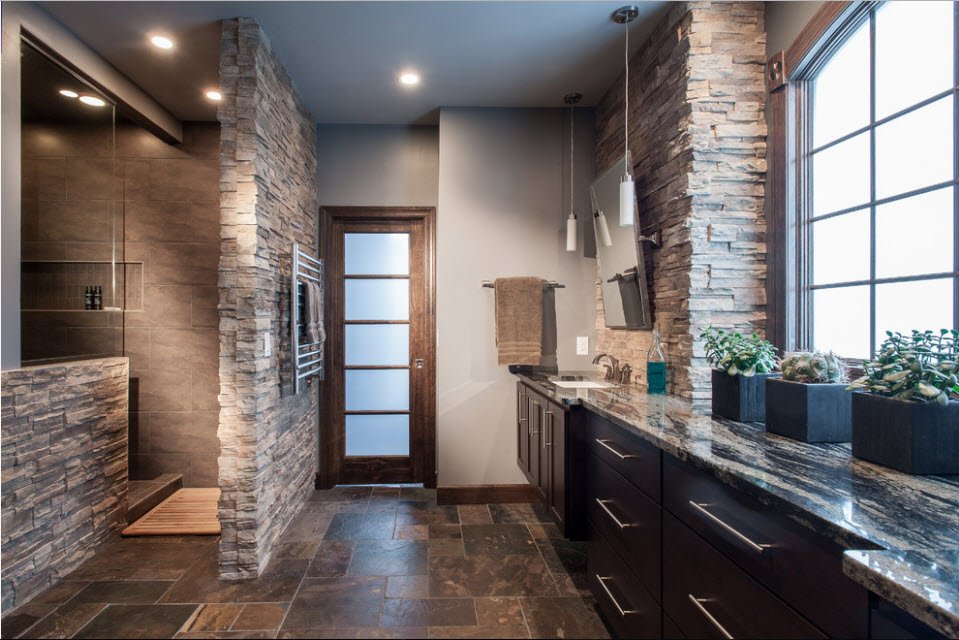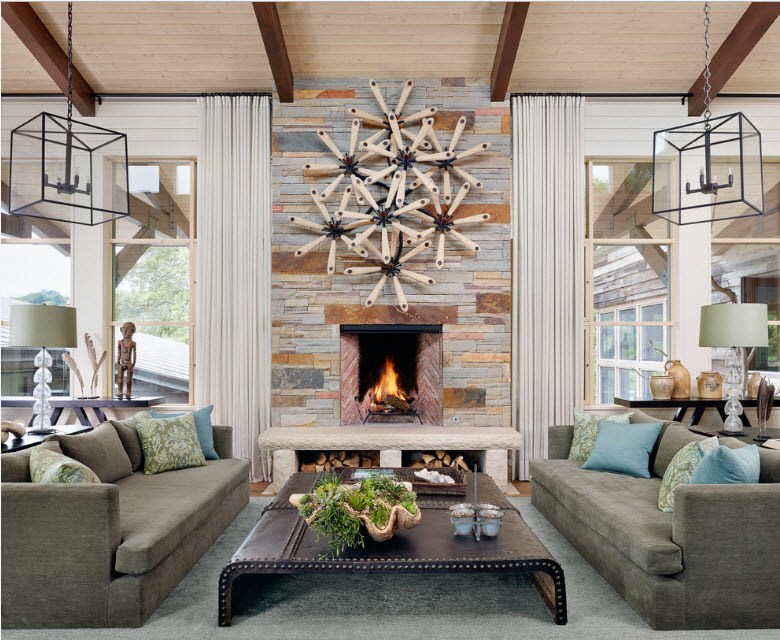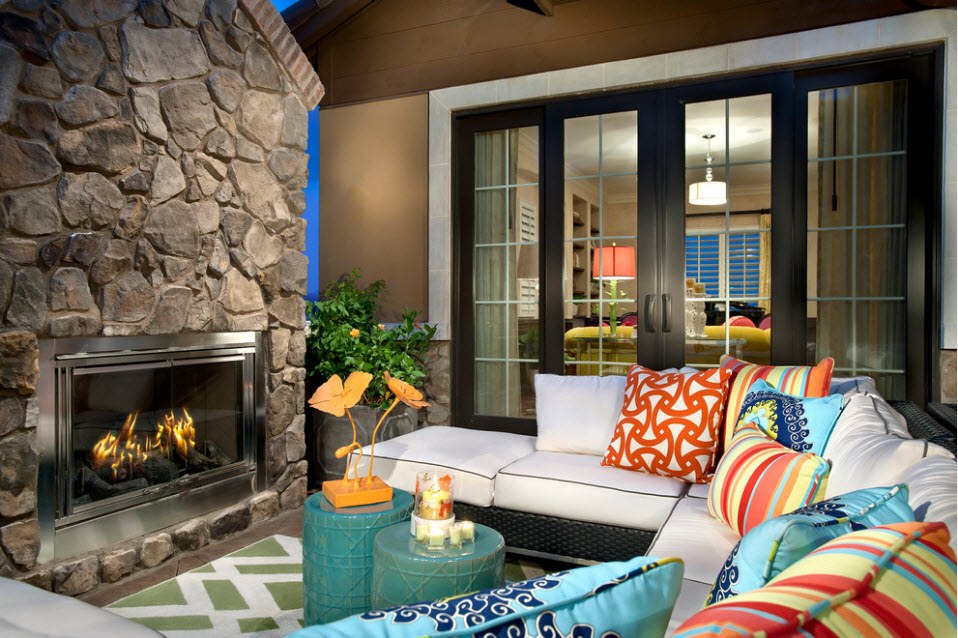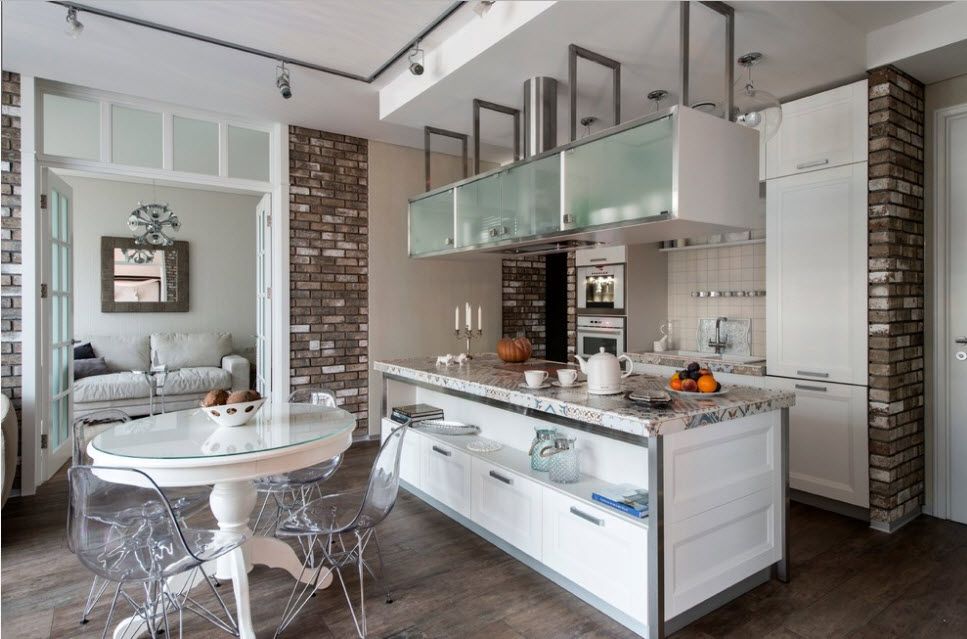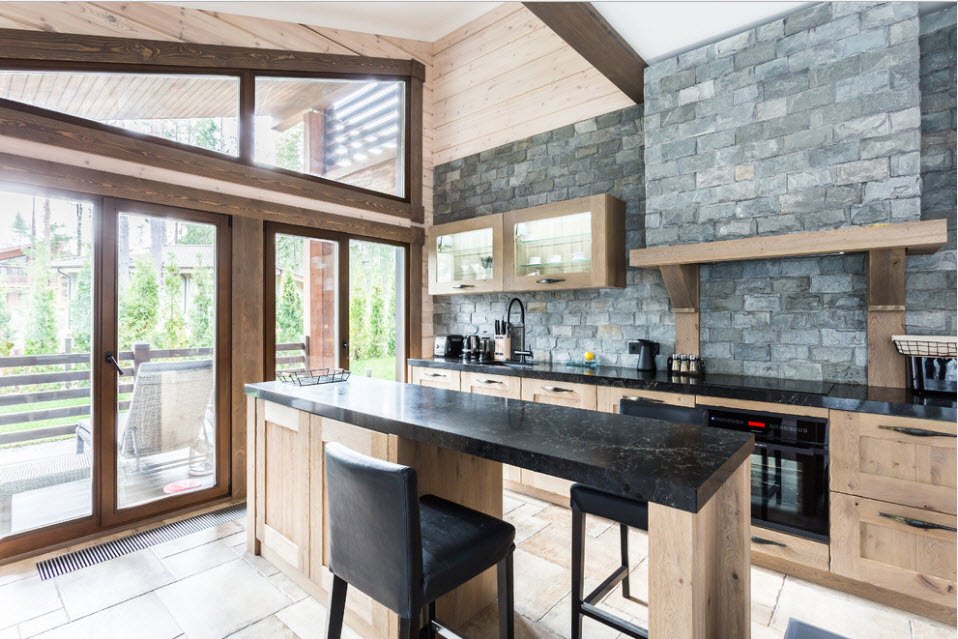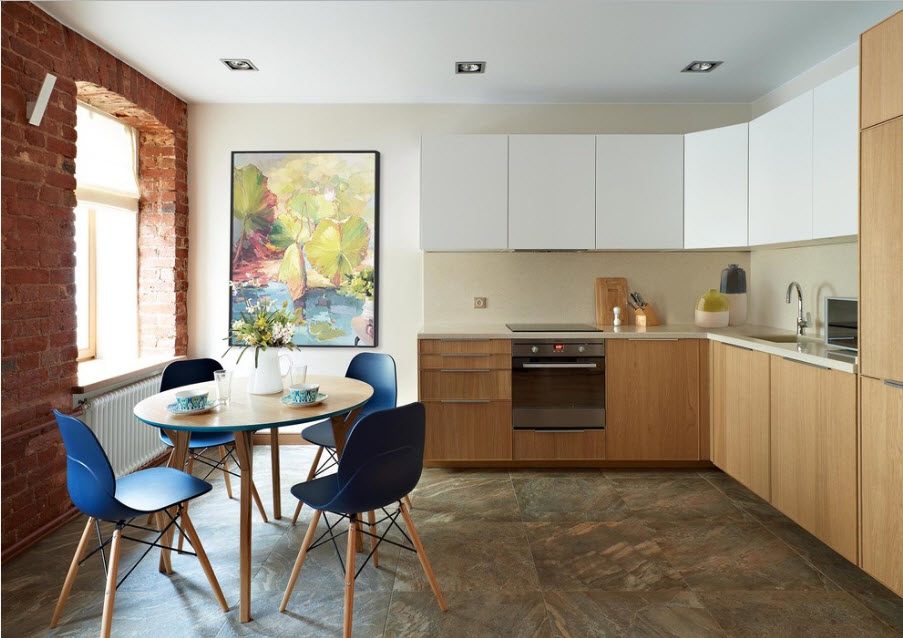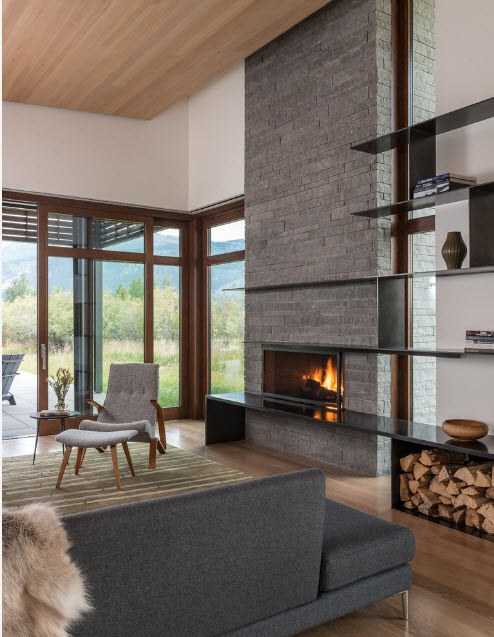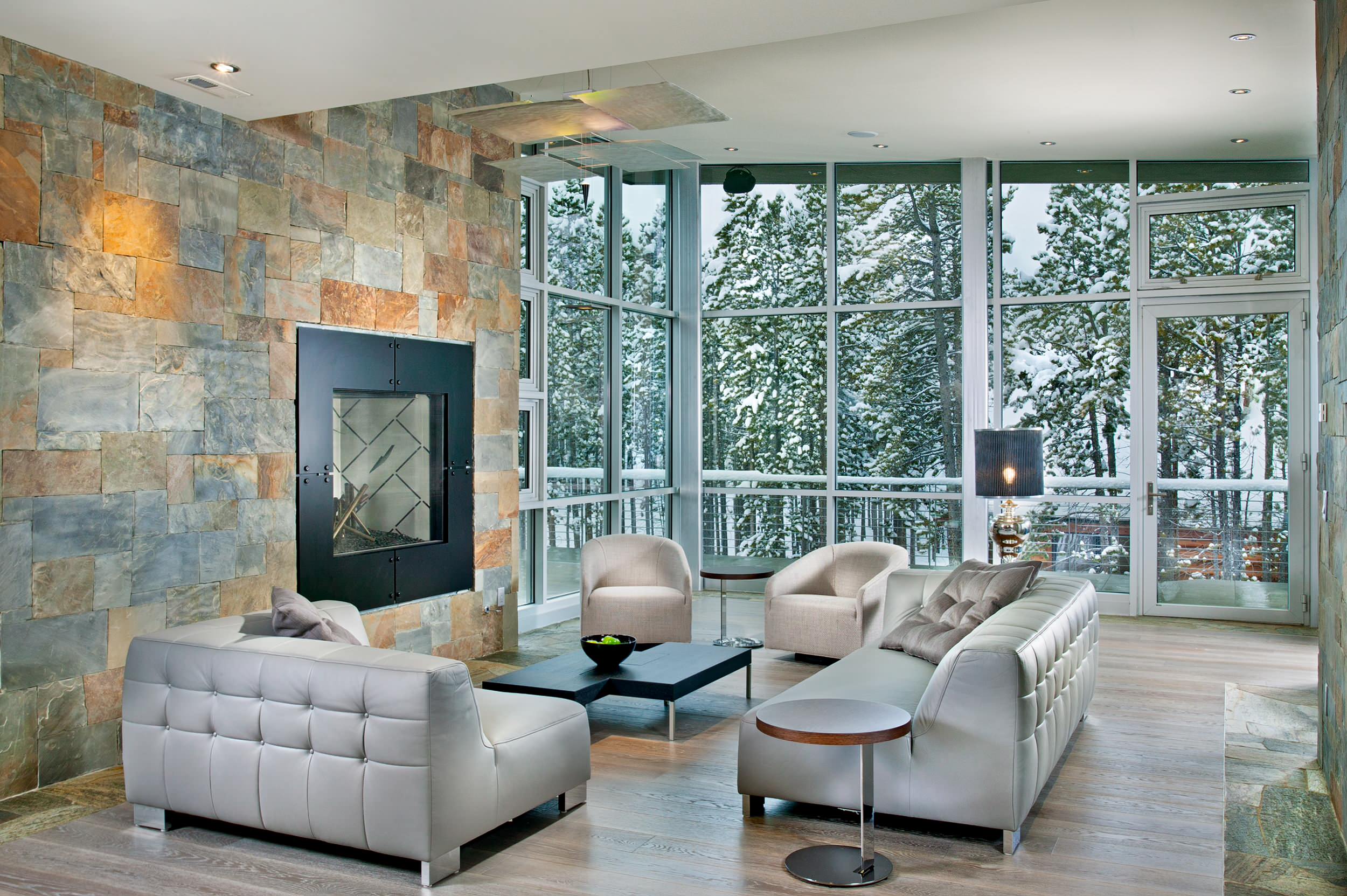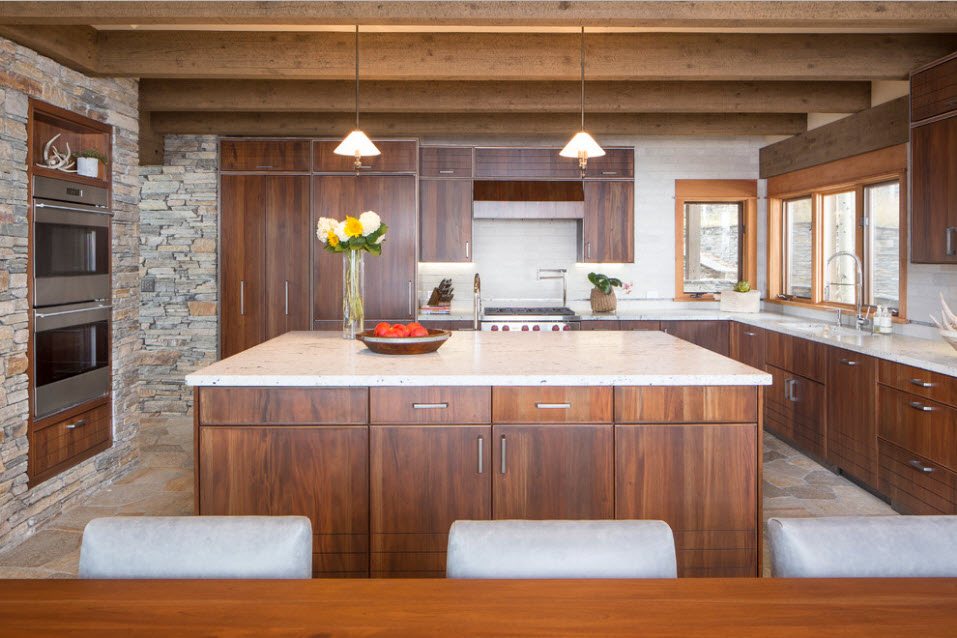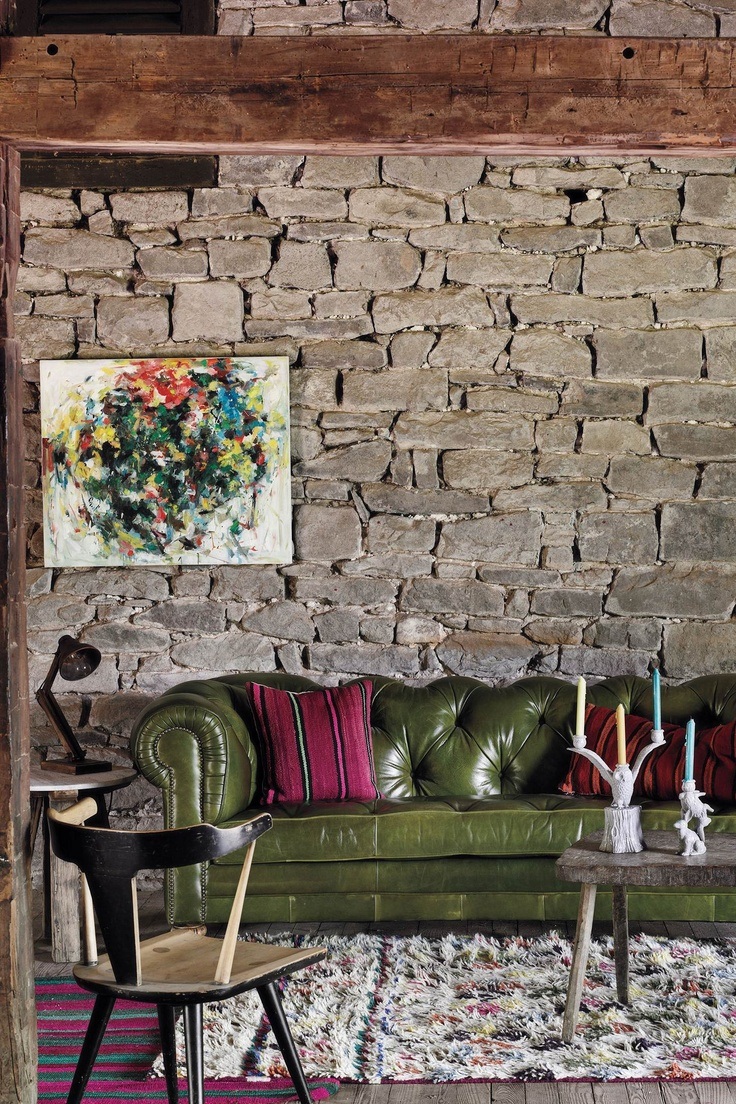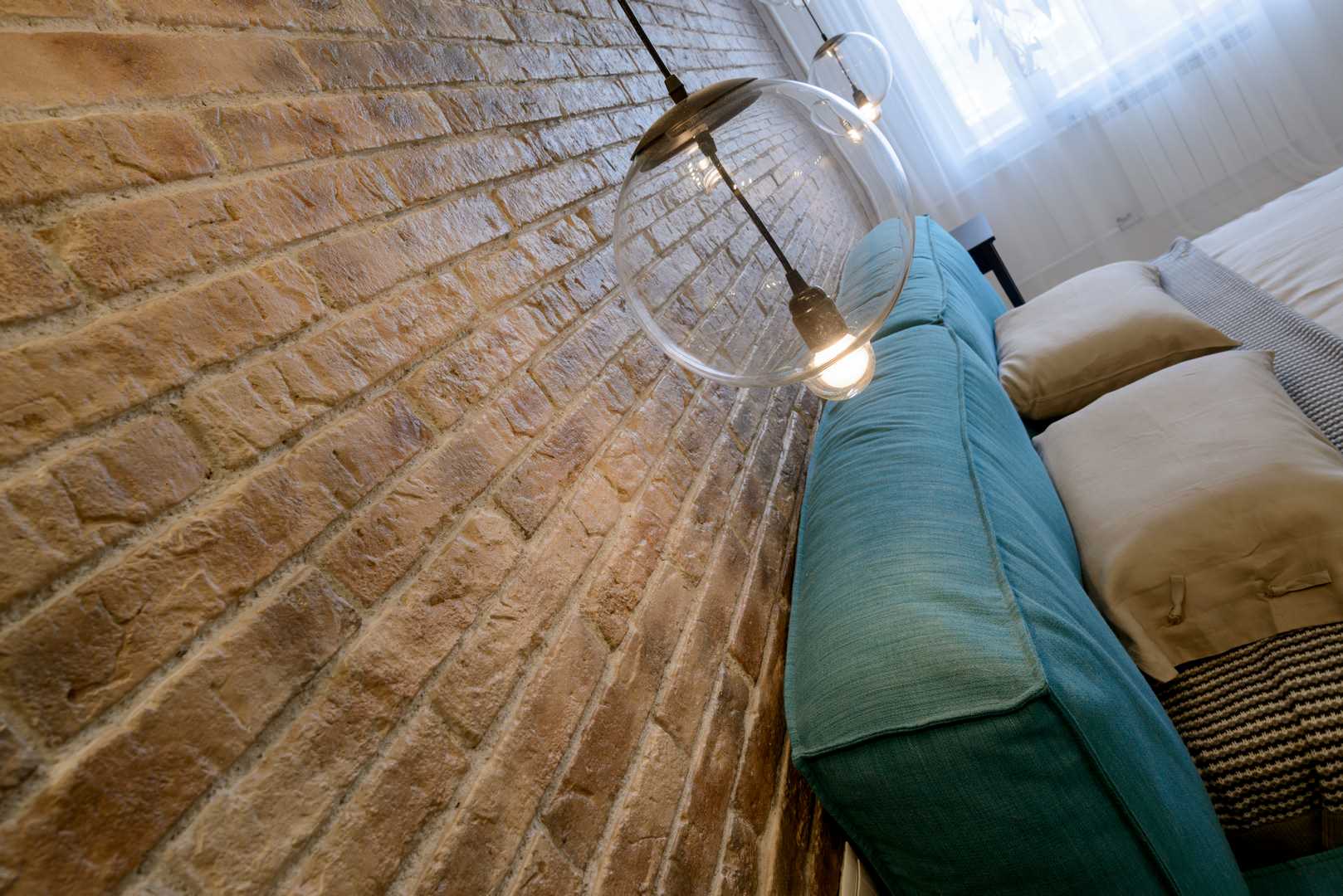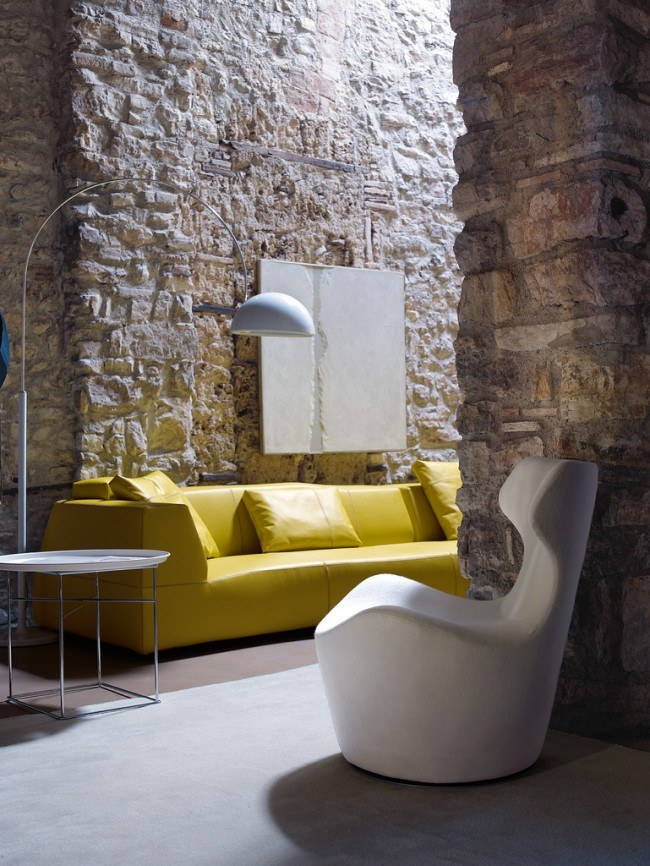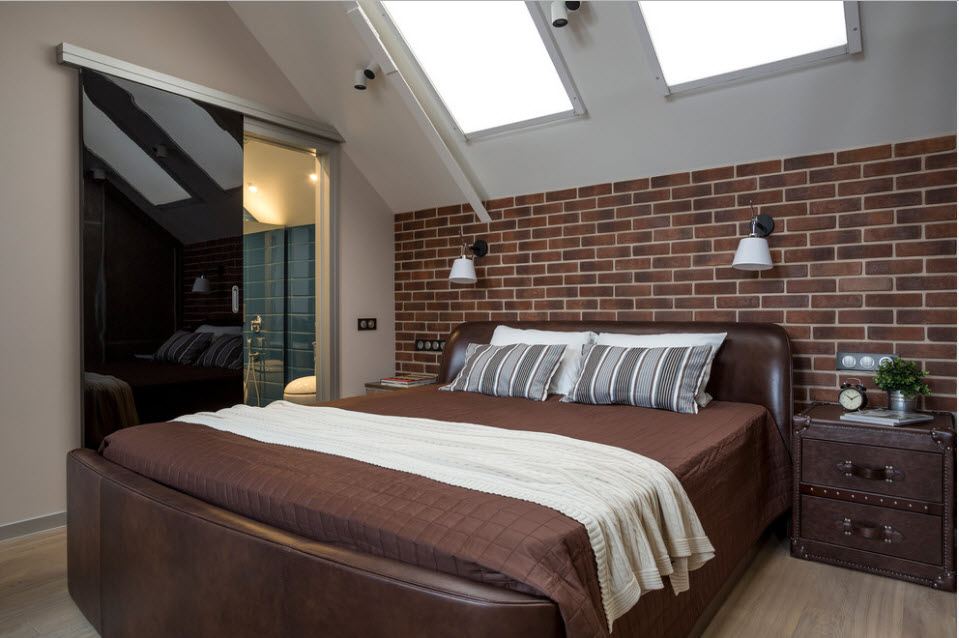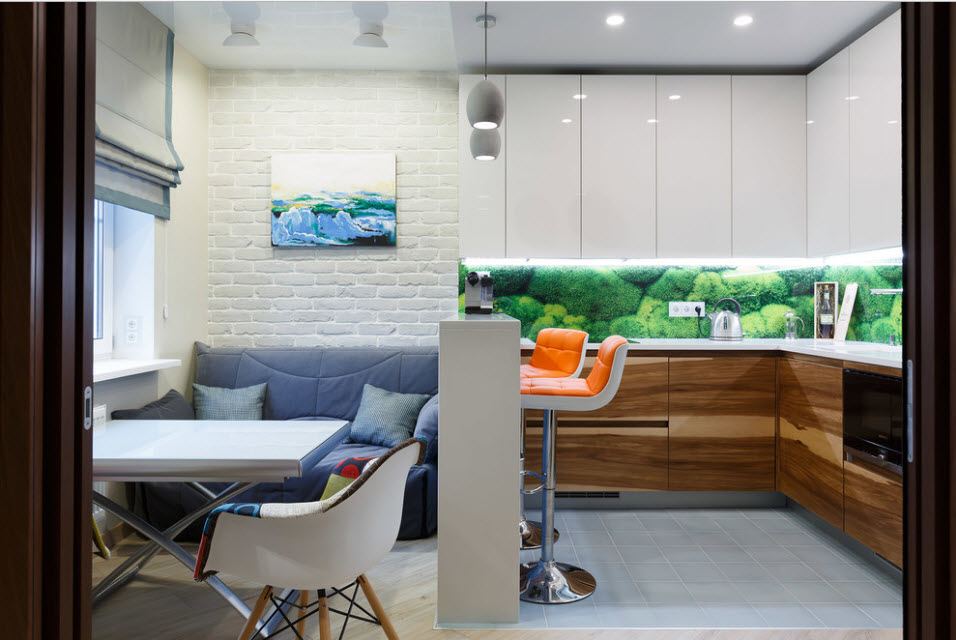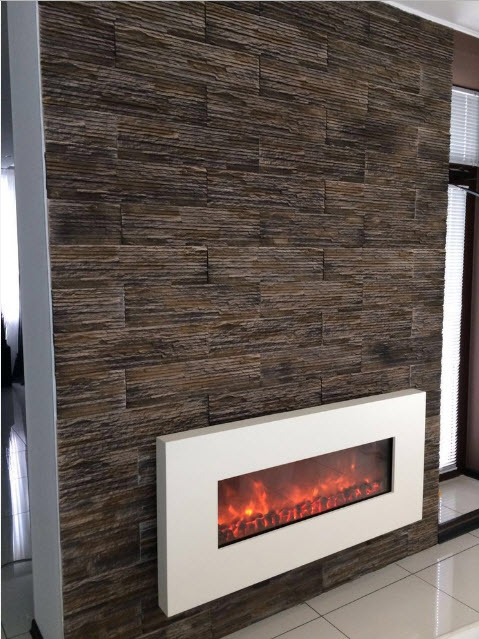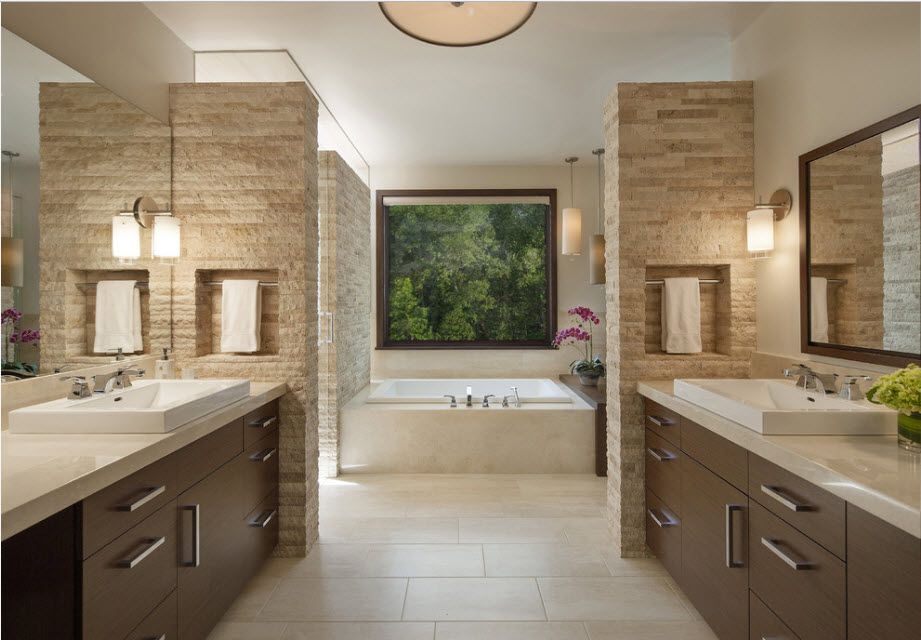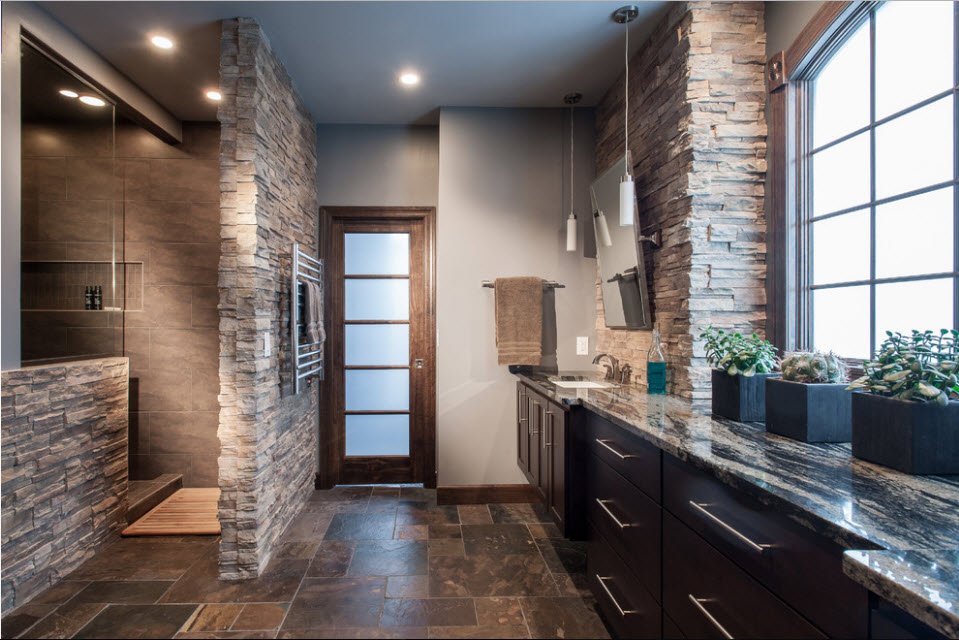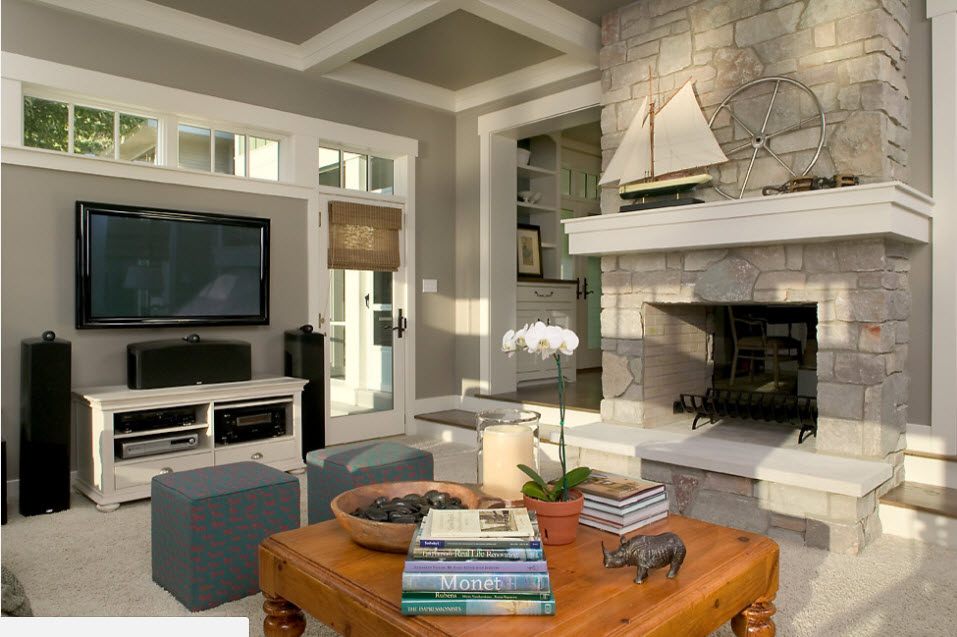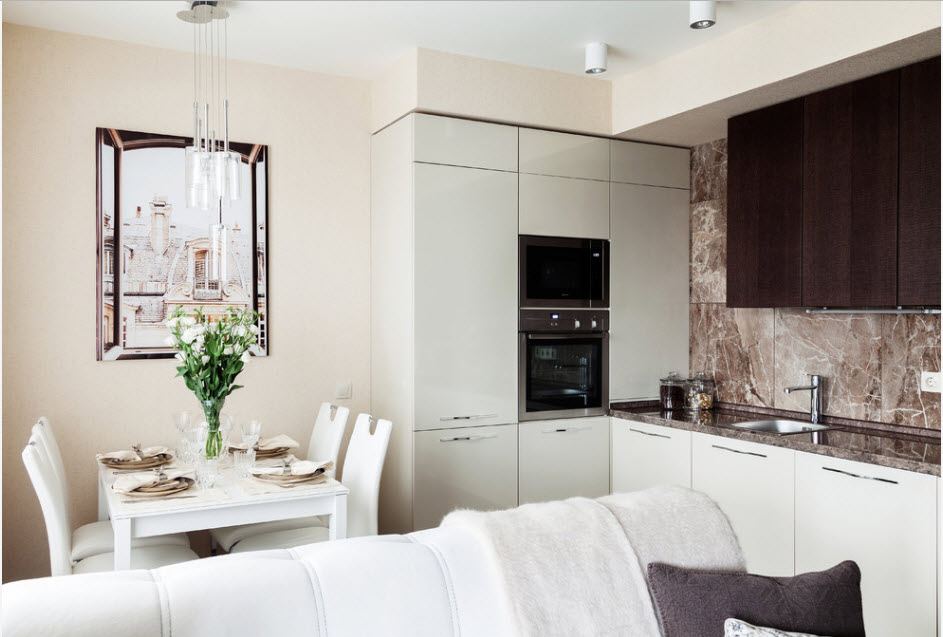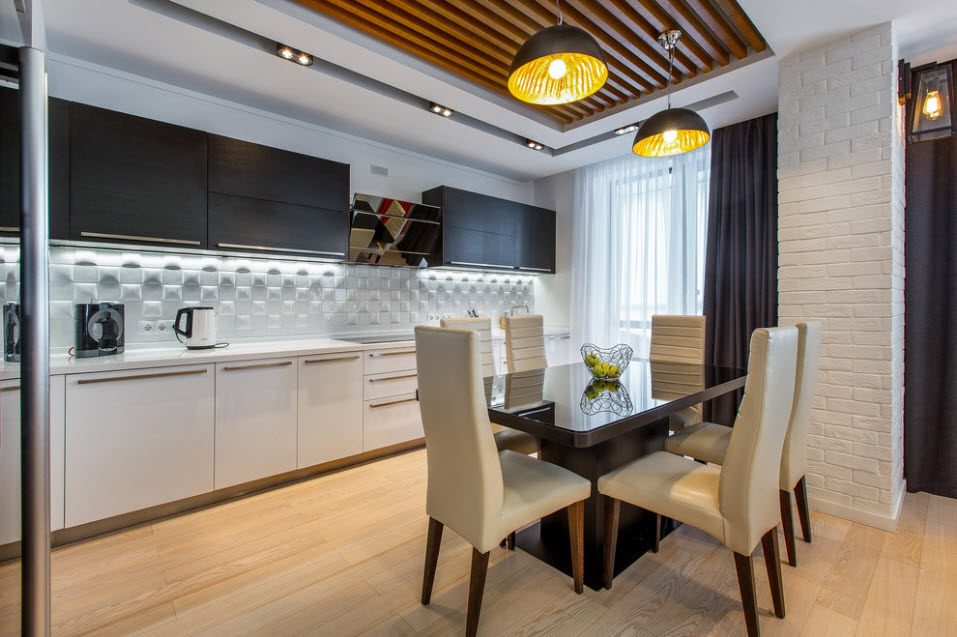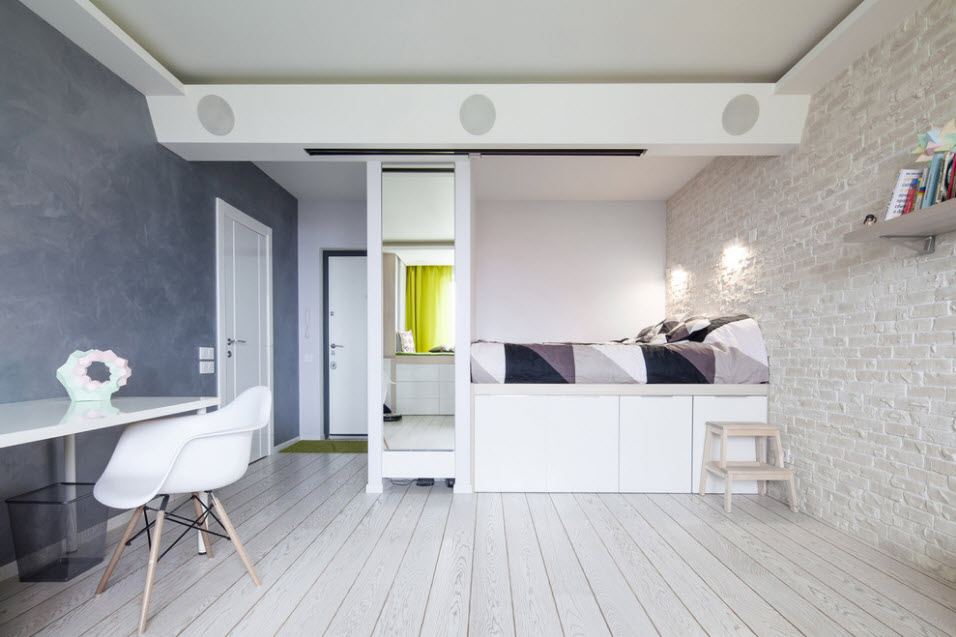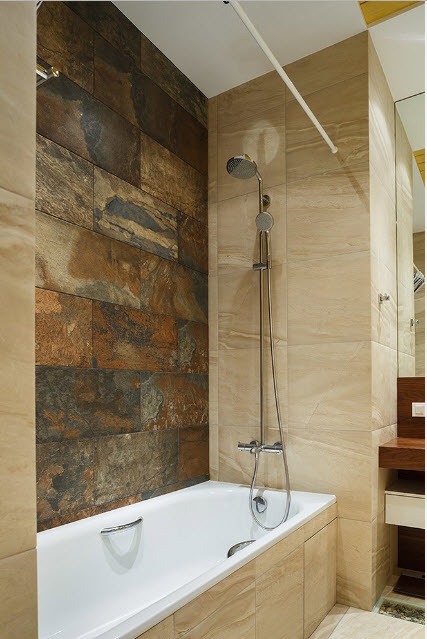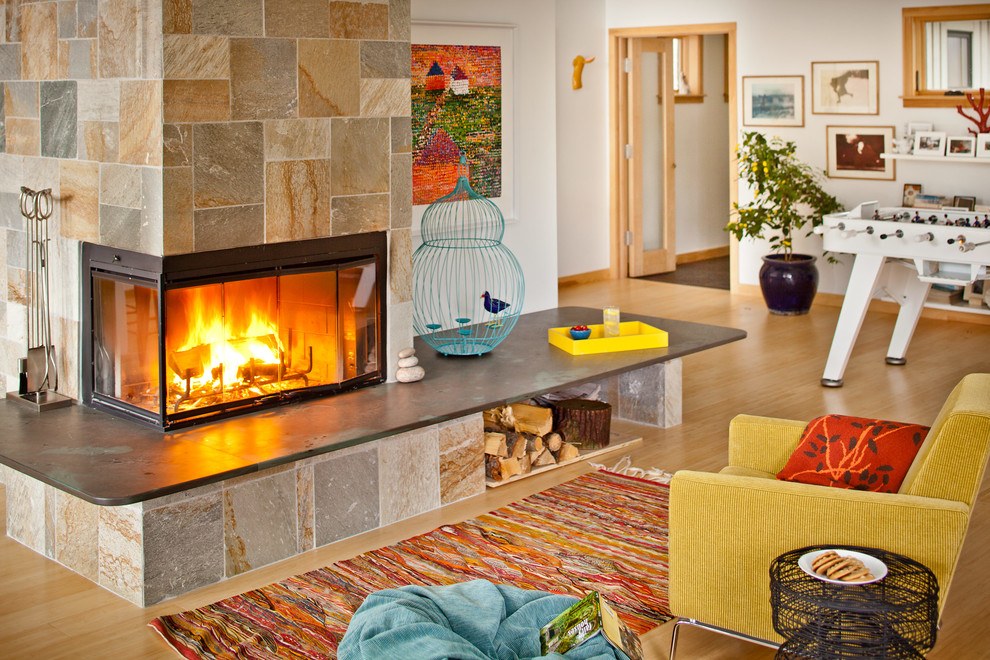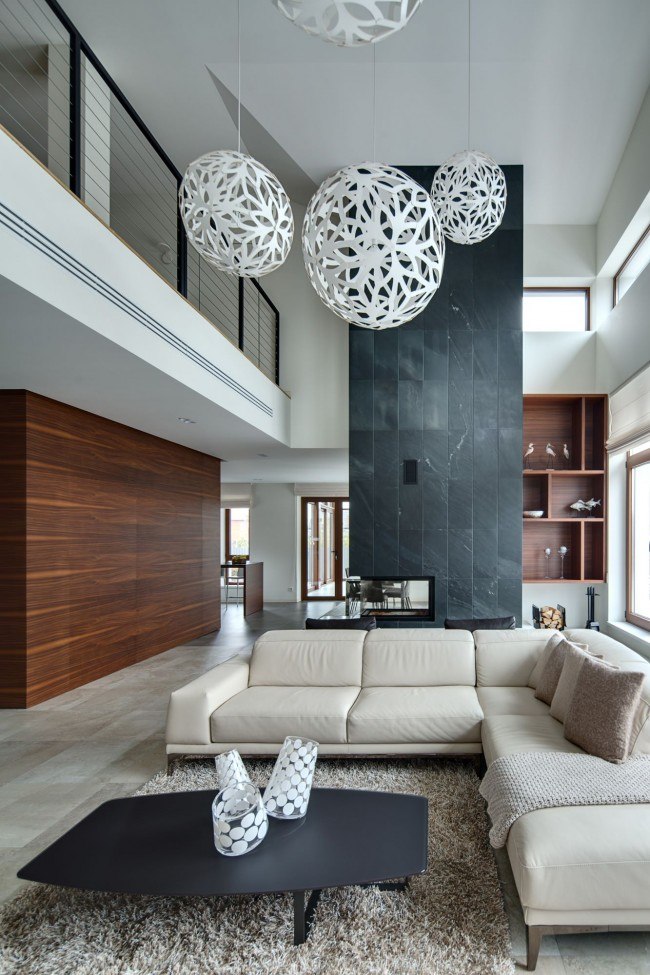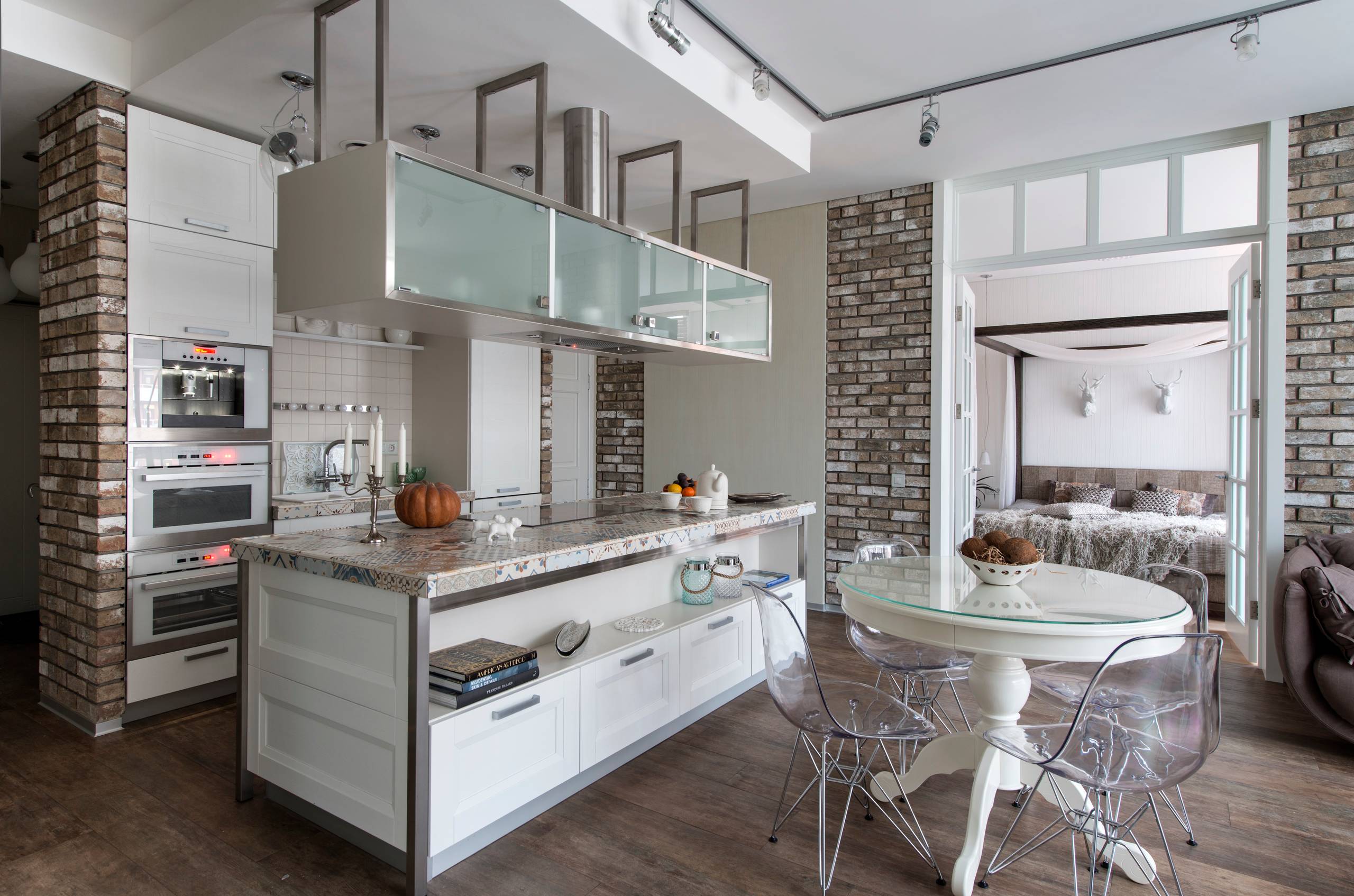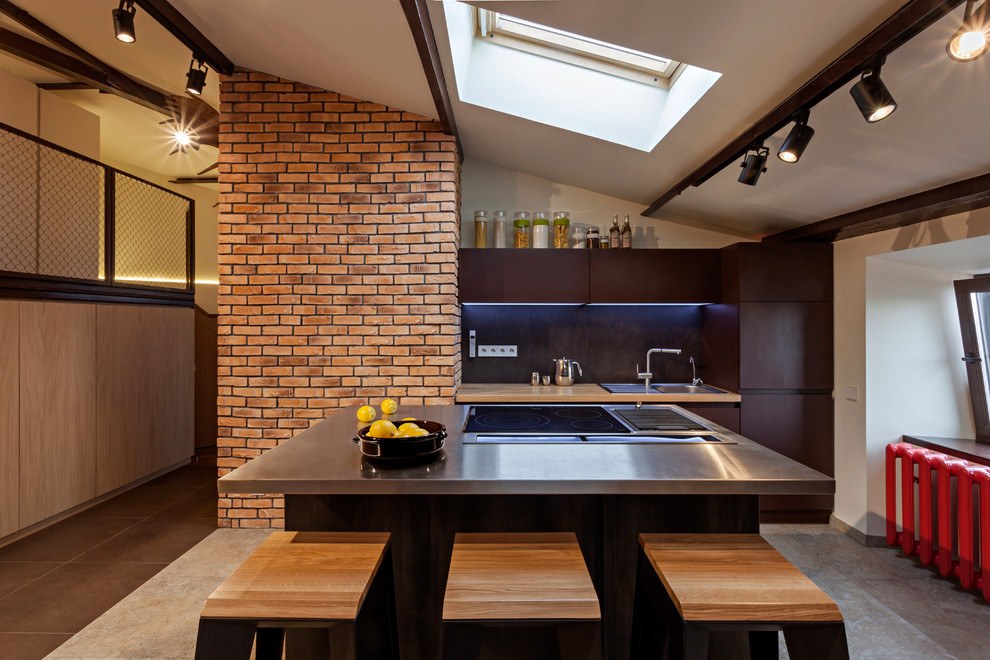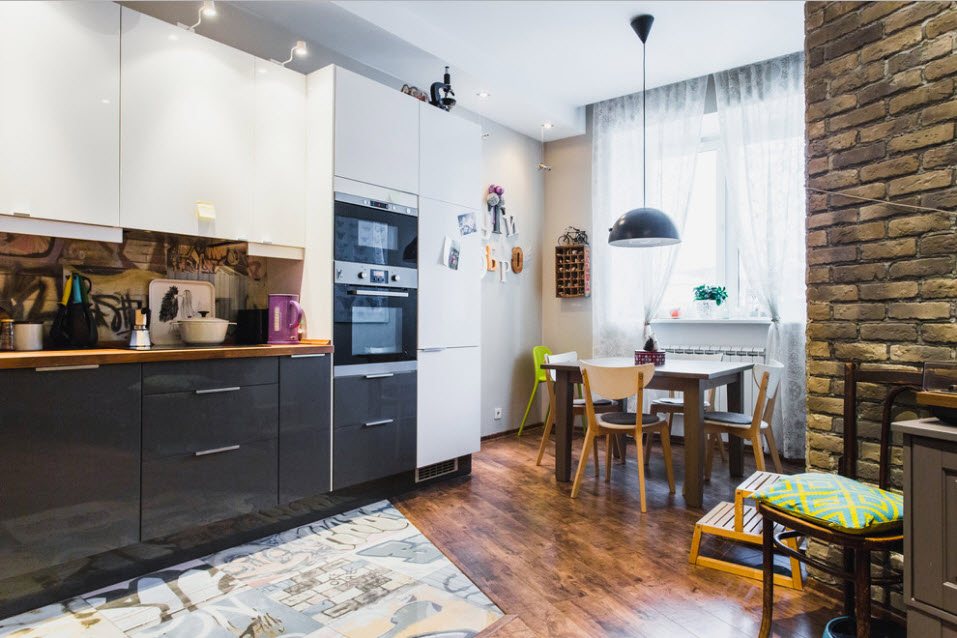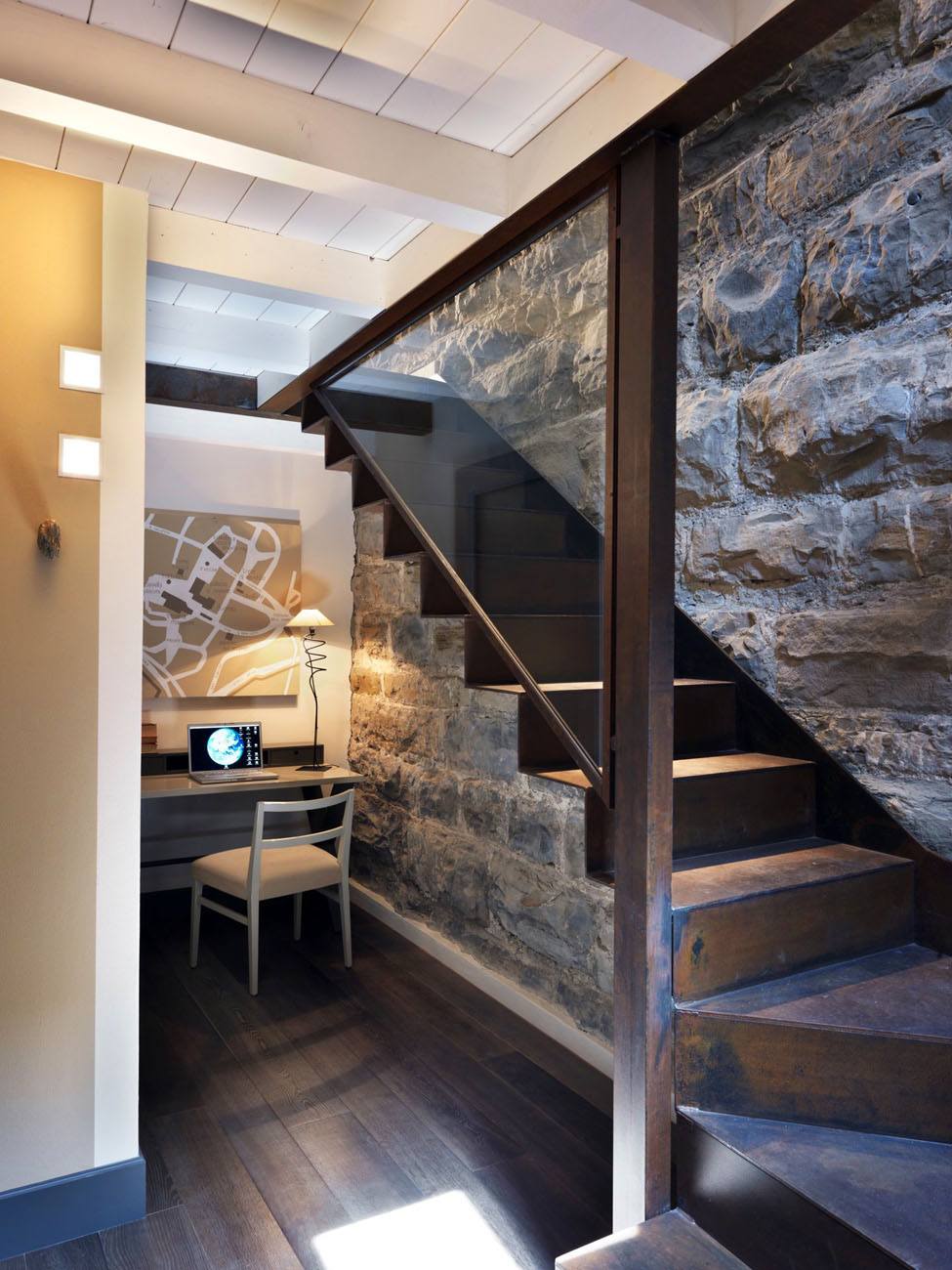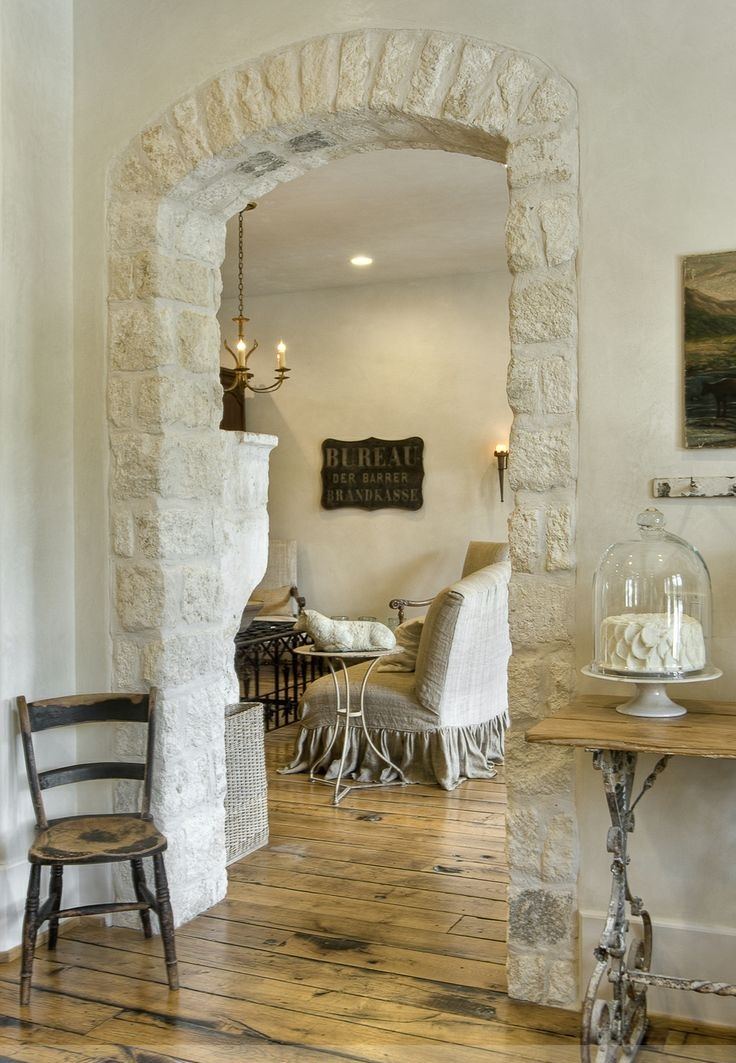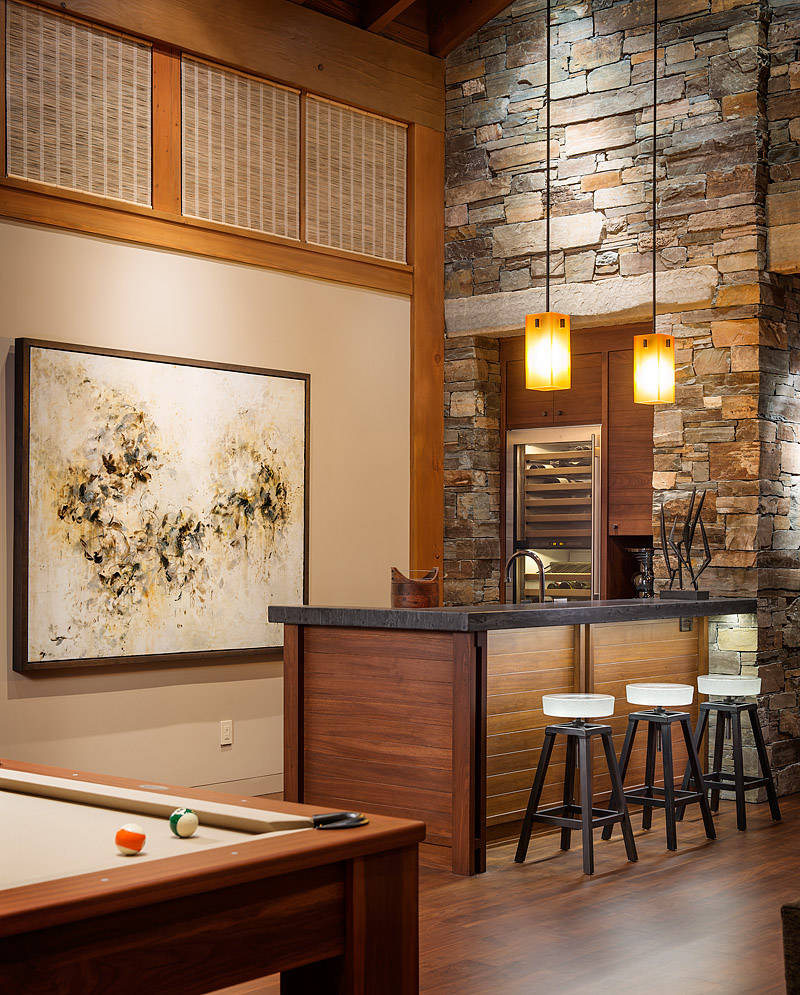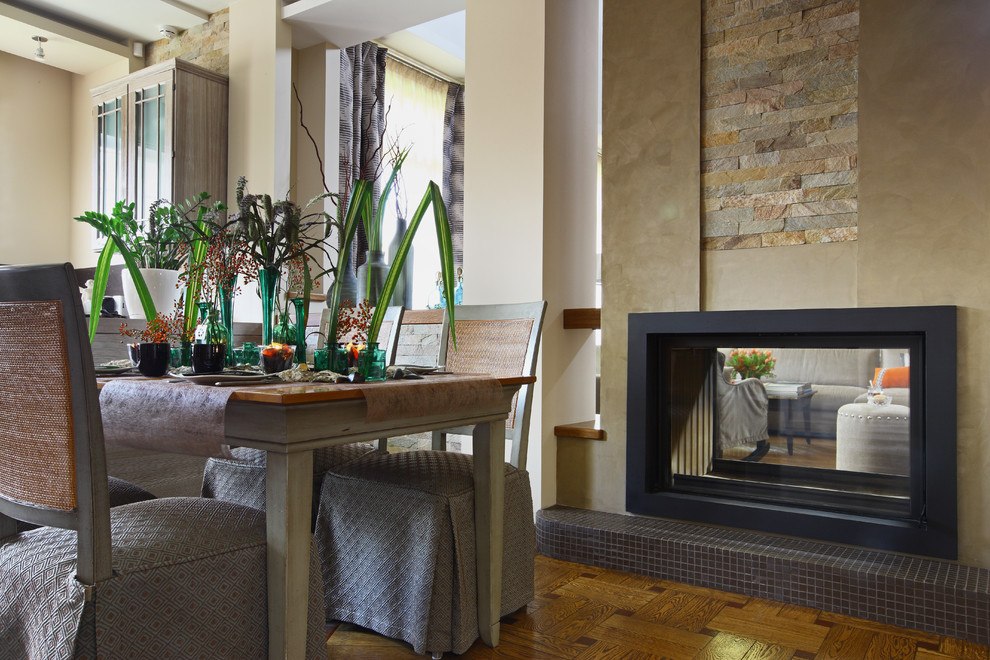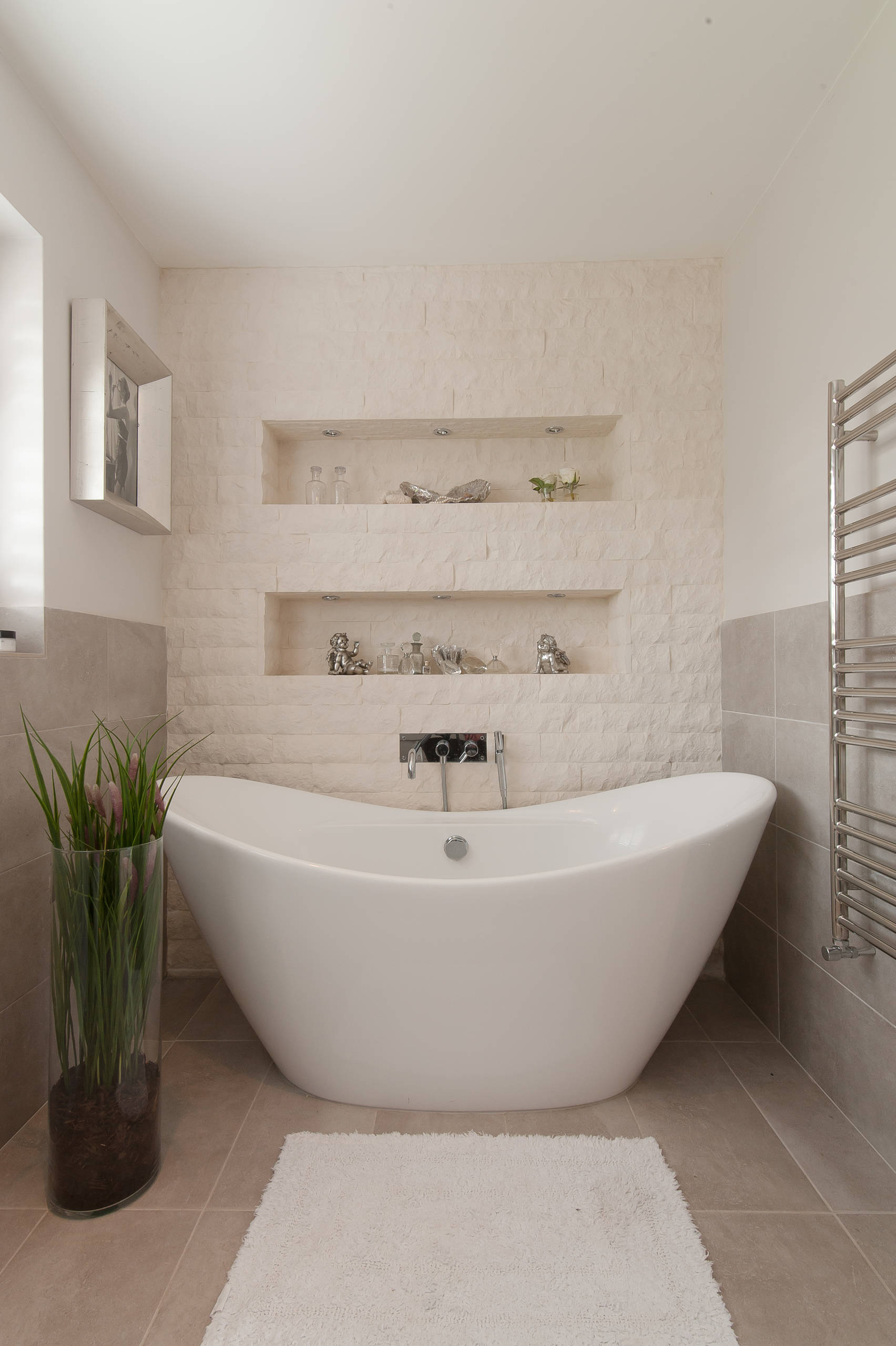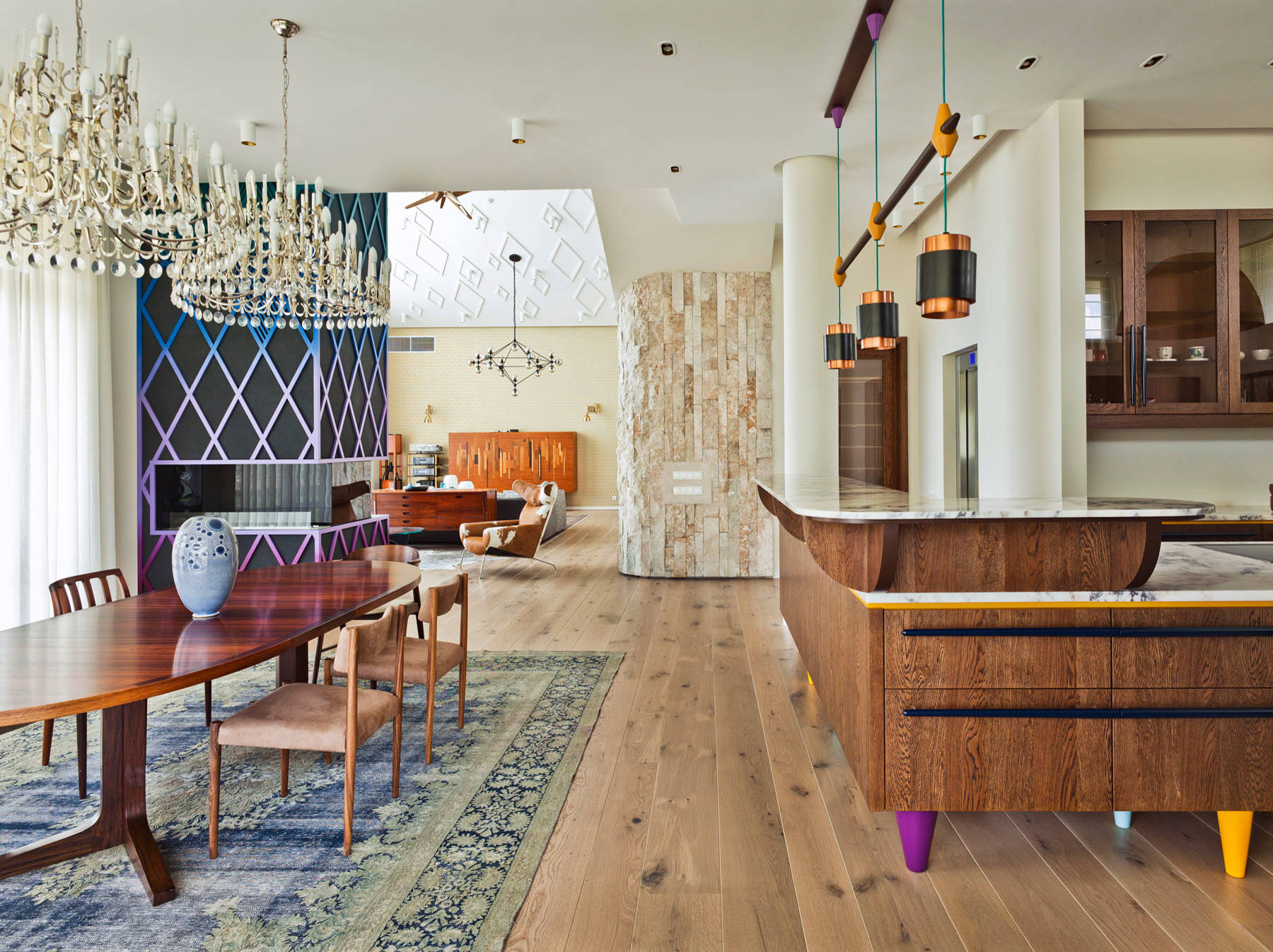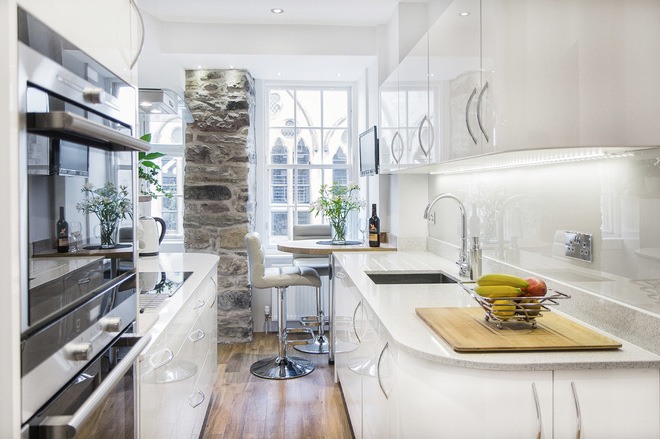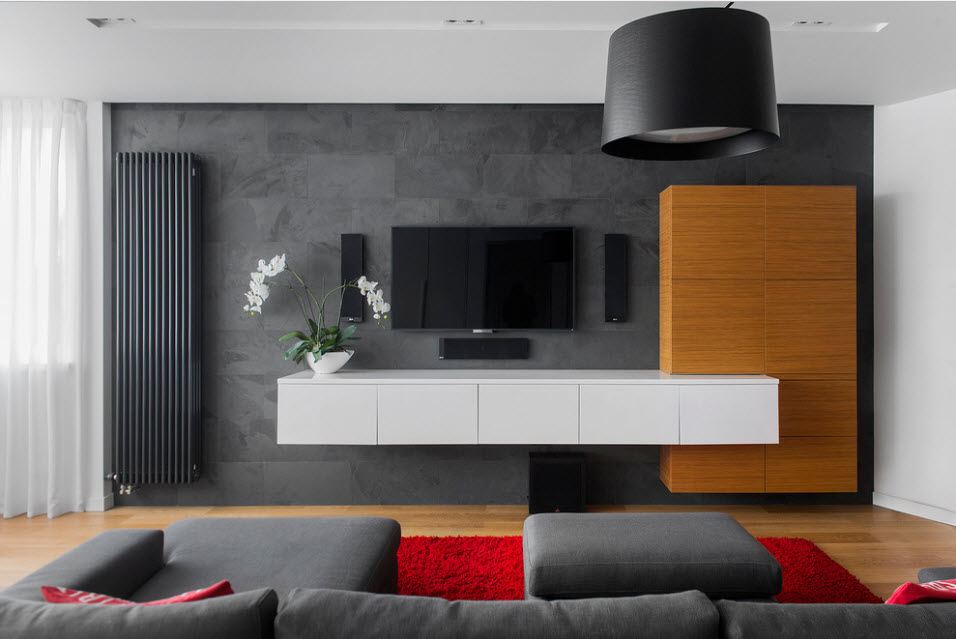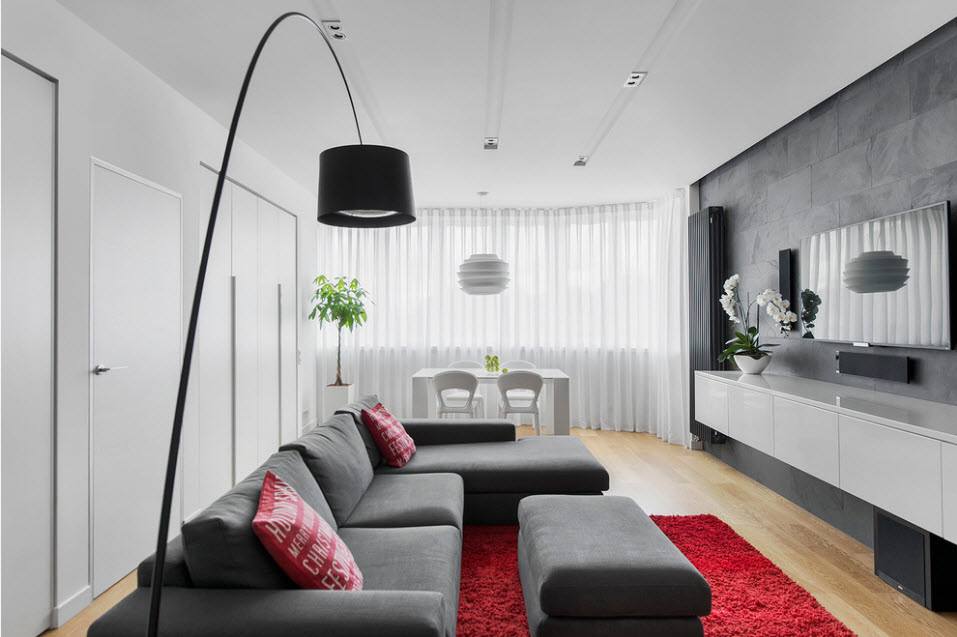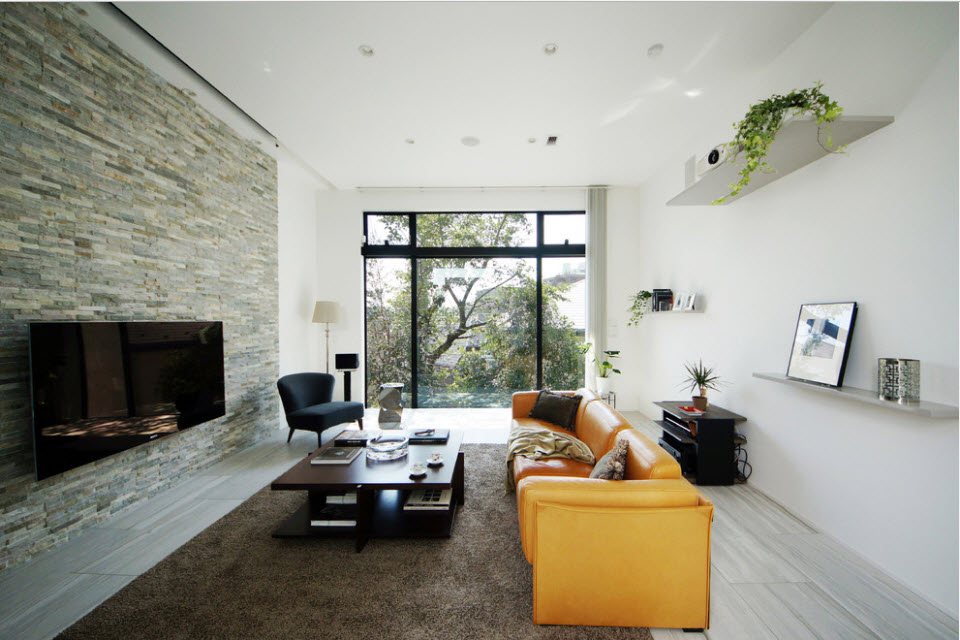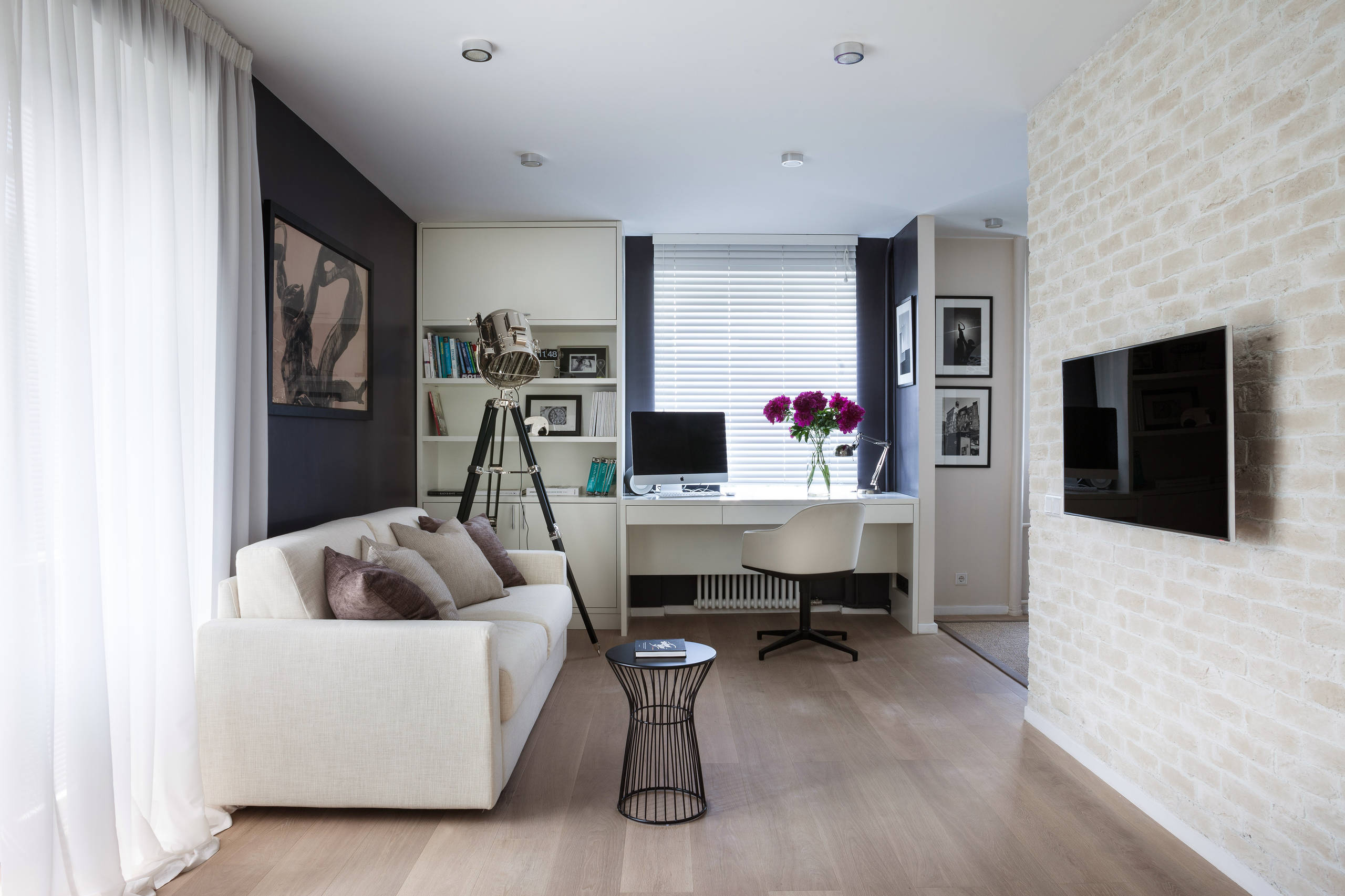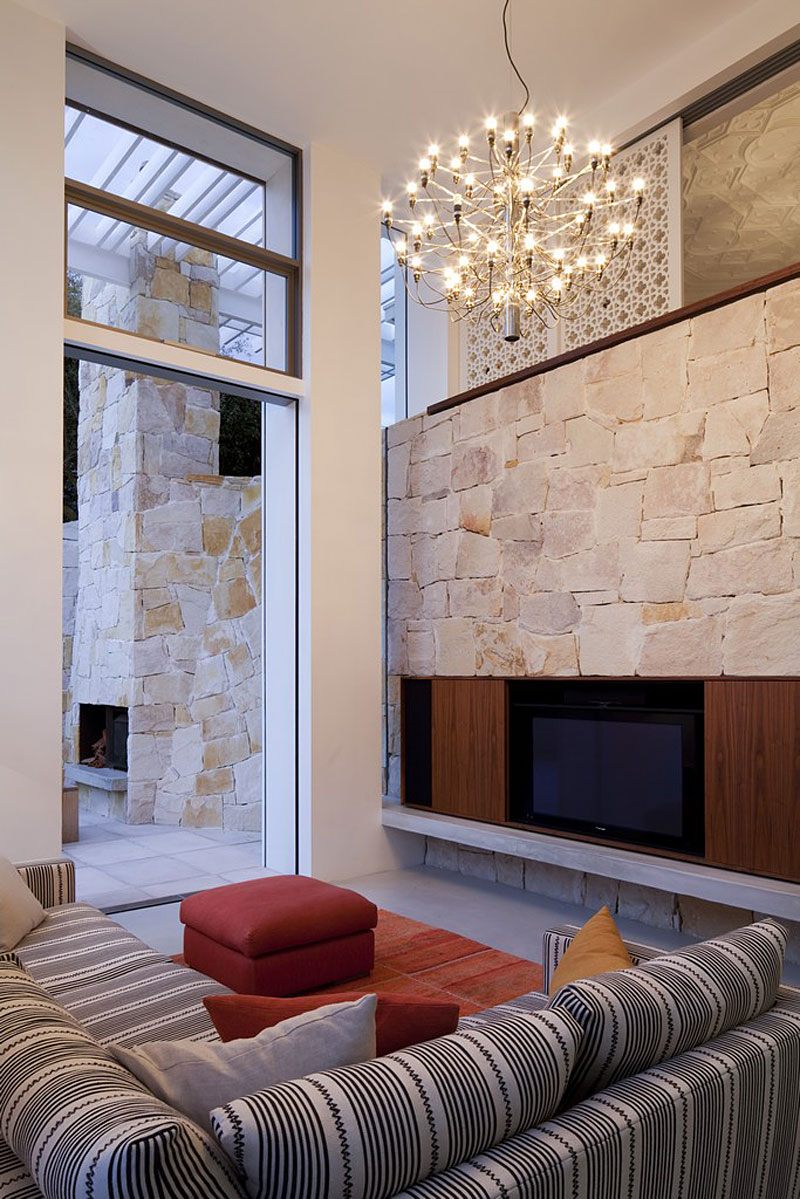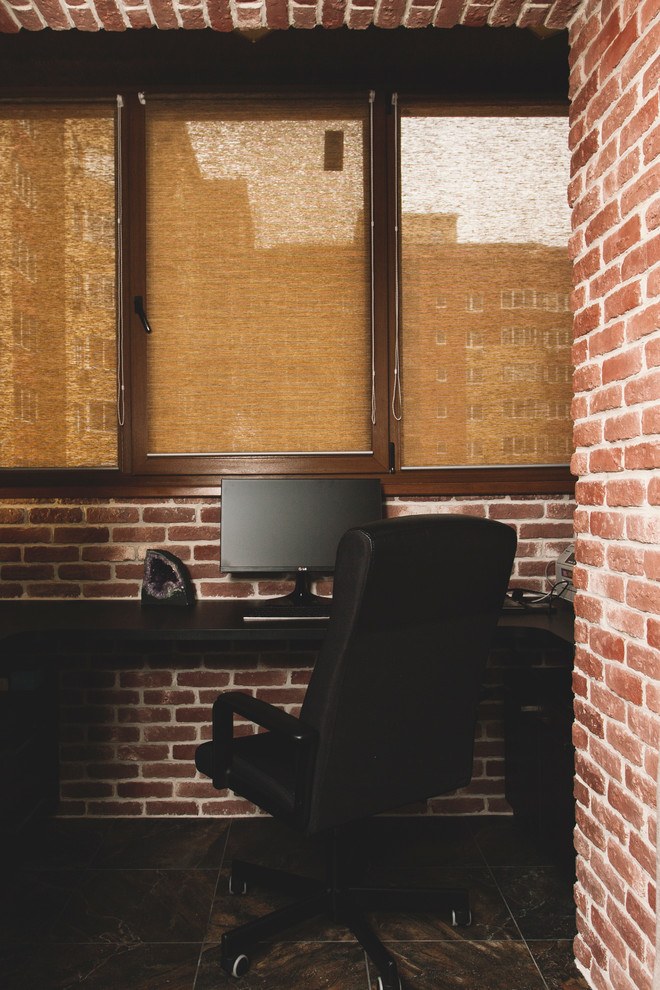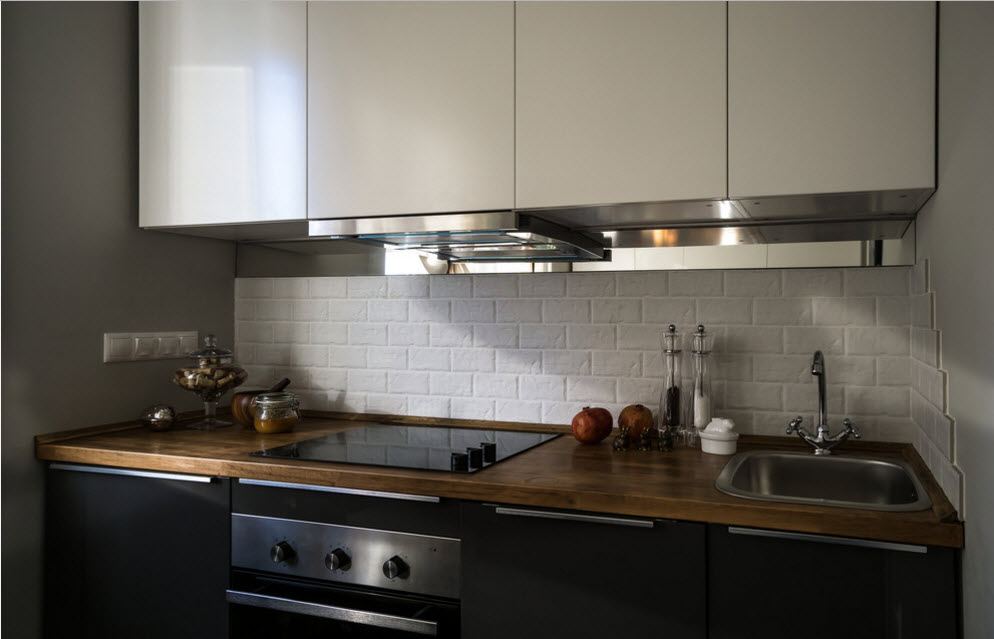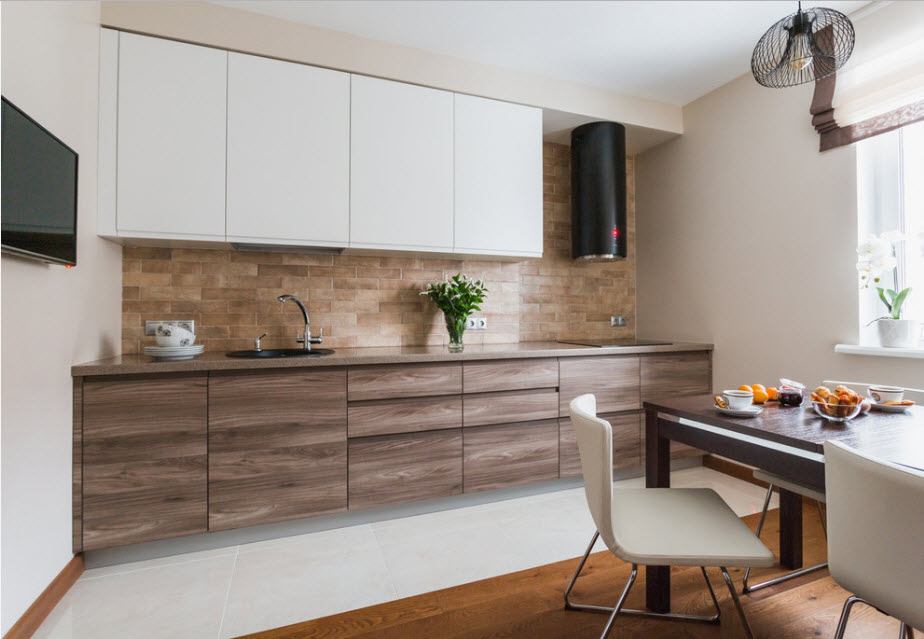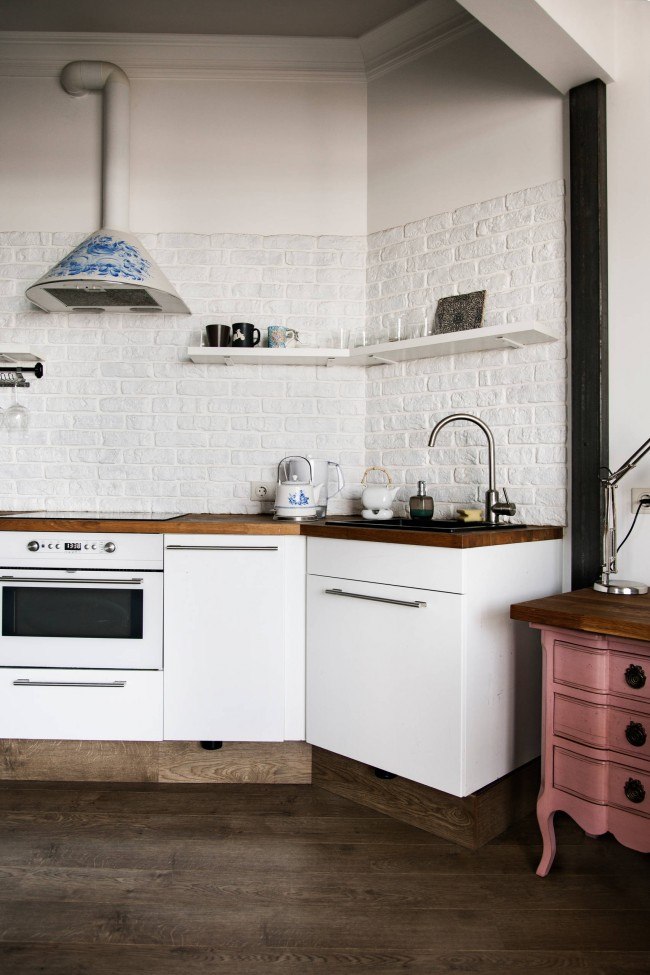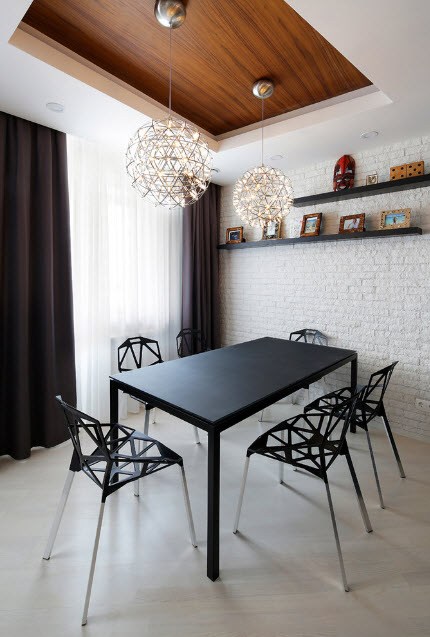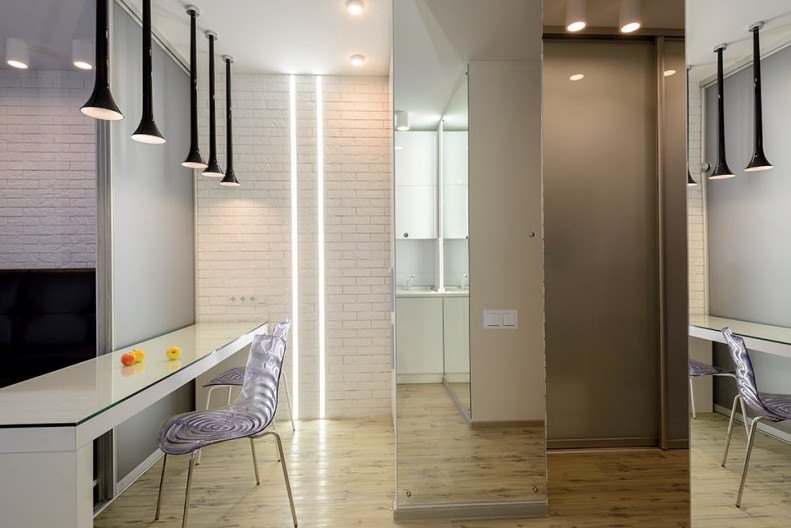The use of stone in interior design is no longer a curiosity. This finish appealed to most designers, who highly appreciated the advantages of natural material. Let’s see how to fit the decoration of decorative stone into the interior, in what styles it will look most harmonious, why designers love it so much and not only.
Advantages of decorative stone
As an interior decoration, this material is one of the most practical, due to its properties:
- hygiene and environmental friendliness – eliminates the possibility of mold and any fungus, so decorative stone trim is perfect for the bathroom and kitchen;
- strength and durability;
- unpretentiousness in cleaning – it is enough to periodically wipe the decorative stone with a soft brush or rag, it is better to avoid rigid metal mesh and active abrasives;
- Decorative stone is a non-combustible material, therefore it is fireproof. And this is the key point regarding his choice for fireplace cladding;
- goes well with many materials – from parquet boards and wood to glass and metal gloss;
- variety of assortment – there are both glossy and matte surfaces of the stone, and in texture – smooth or rough;
- богатство узоров и оттенков позволяет оформить интерьер так, чтобы он был оригинальным и абсолютно уникальным;
- Modern decorative stone is a completely light material that can destroy or deform walls.
Obviously, the use of decorative stone in interior decoration has undeniable advantages, thanks to which this natural material is a welcome guest in almost any room.
Basic principles of interior decoration with decorative stone
The main principle of finishing an apartment with stone is a sense of proportion. If you “roam” and decorate all the walls from floor to ceiling with stone, the effect will be completely opposite to the desired: instead of warmth and a cozy home environment, you will get a crypt or a cave, staying in which will evoke despondency and cold. Therefore, using a decorative stone in the design of rooms, you need to correctly assess the height of the ceilings, the area of the room, its stylistic direction, the level of natural light, which side the windows face and whether they are present at all.
Most city apartments do not have high ceilings and spacious large rooms, so most often decorative stone is found in the decoration of private houses and country cottages. If you still really want to bring an accent of monumentality to the design of the apartment and at the same time more comfort, with the right approach, the stone can be used here. Consider some examples of its use in a standard city apartment:
- Part of the wall trimmed with stone is a great way to zone the room. Especially if the layout of the apartment is made in the form of a studio, so you can visually divide the kitchen space and living room, as well as the bedroom and study;
- in a two-level apartment, it will be good to use stone masonry near the stairs;
- an interesting idea is to decorate one of the walls of the hall or hallway with natural material, or to lay out interior arches with decorative stone;
- Stone and all natural materials look very organic in the places where the equipment is located. And in order to reduce the strain on the eyes and ears, it is better to choose for stone cladding exactly those areas where the computer or TV works;
- Decorative stone looks great in the kitchen, replacing the traditional tiled backsplash.
We can talk endlessly about such examples of the use of this luxurious natural material. But first of all, it is important to understand that in a small apartment with an insufficient amount of natural light, you need to limit the use of decorative stone. In this case, it is better to choose a light type with a porous structure.

